Aboriginal Australian vocabulary lists with English translation, including notebook by E. R. B. Gribble, undated
View in Library Catalogue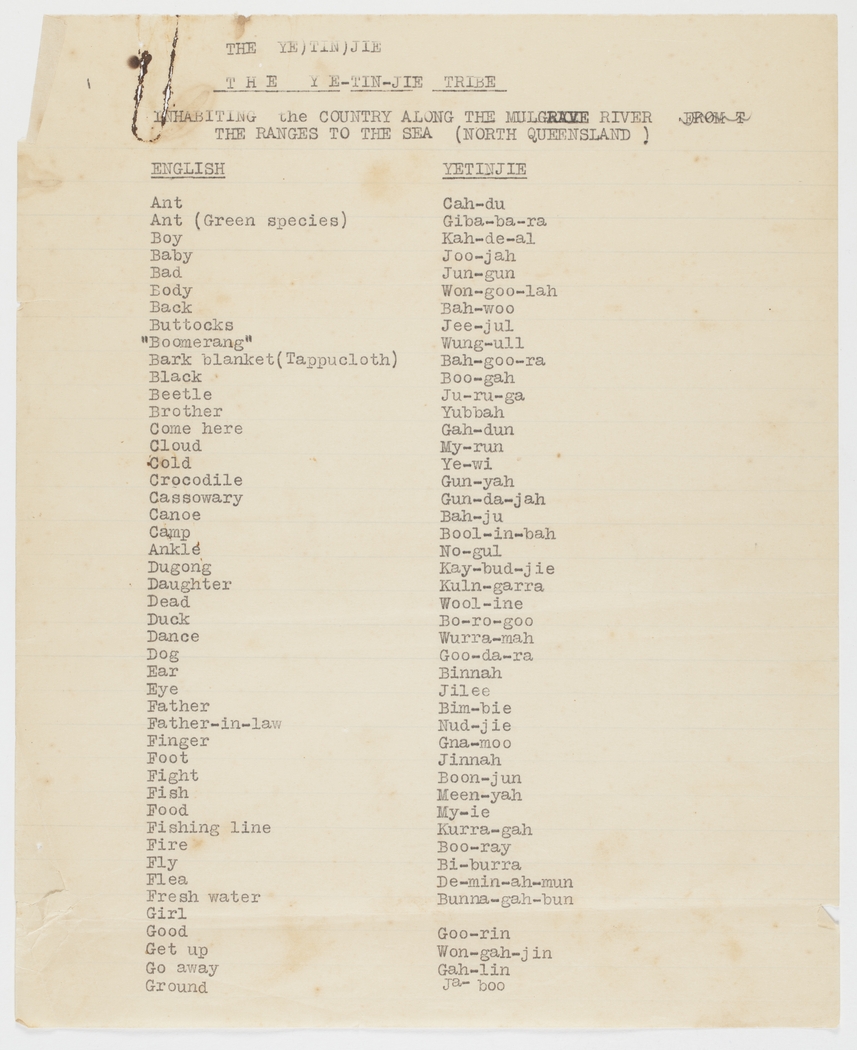
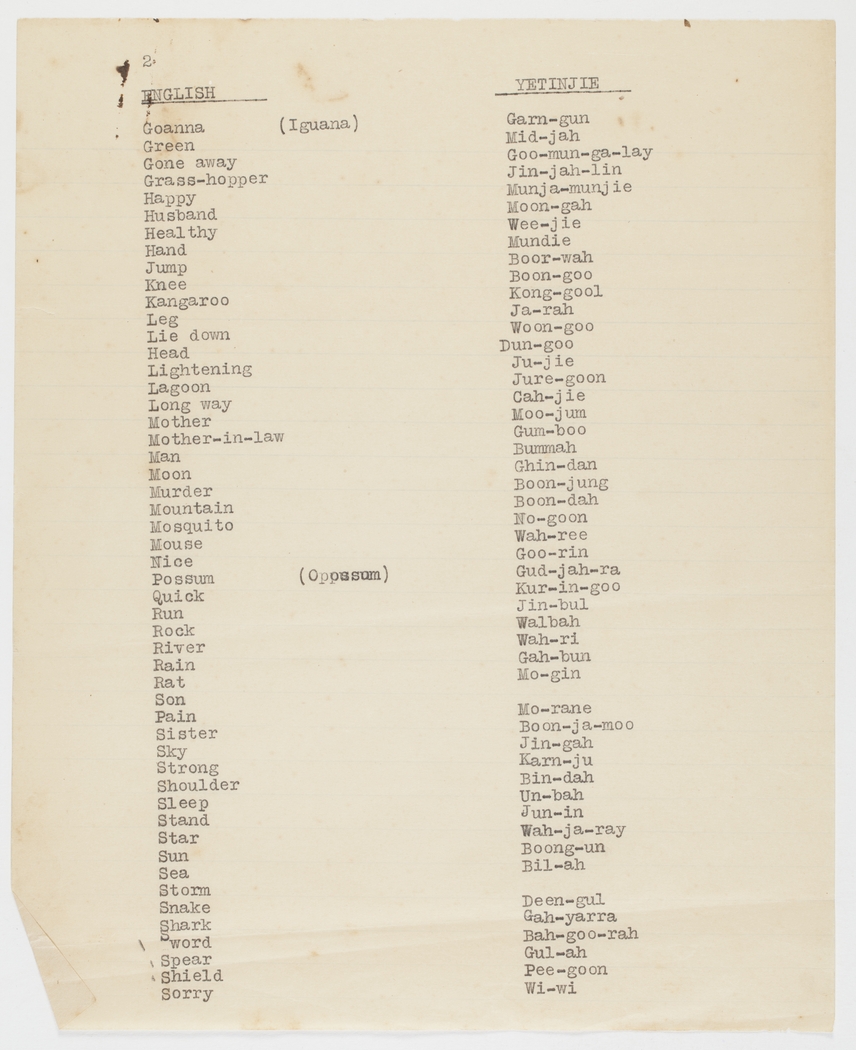
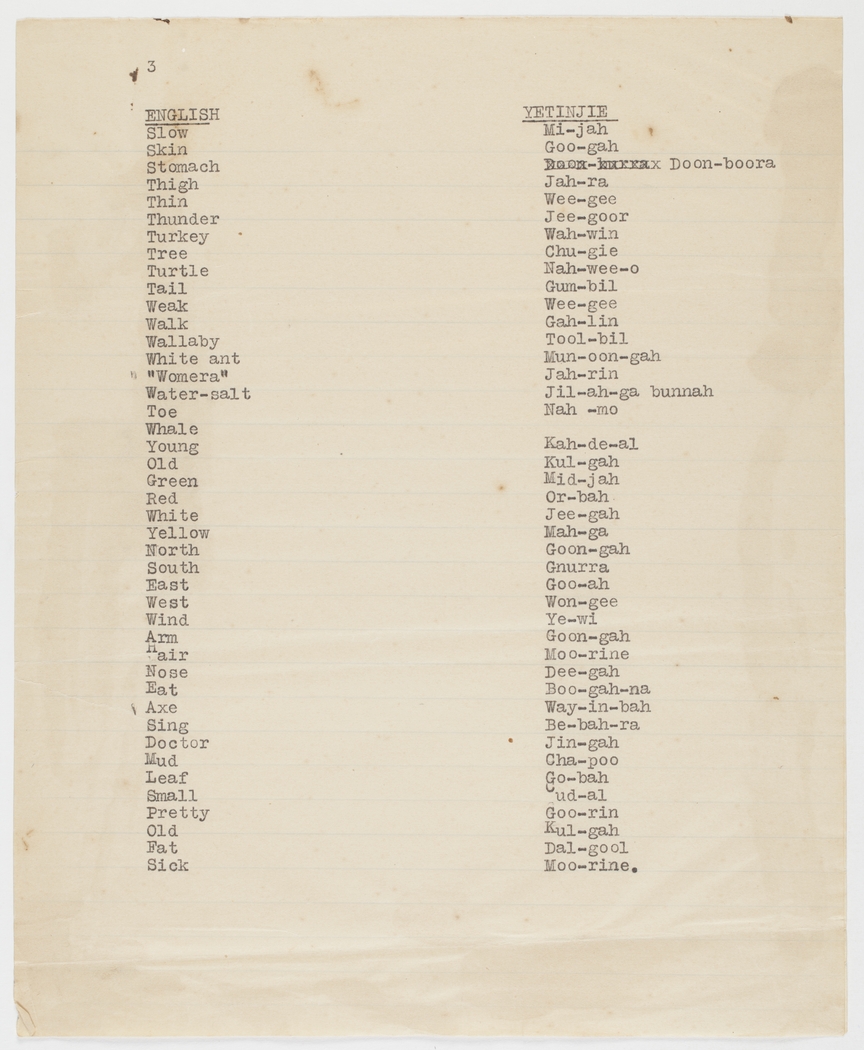
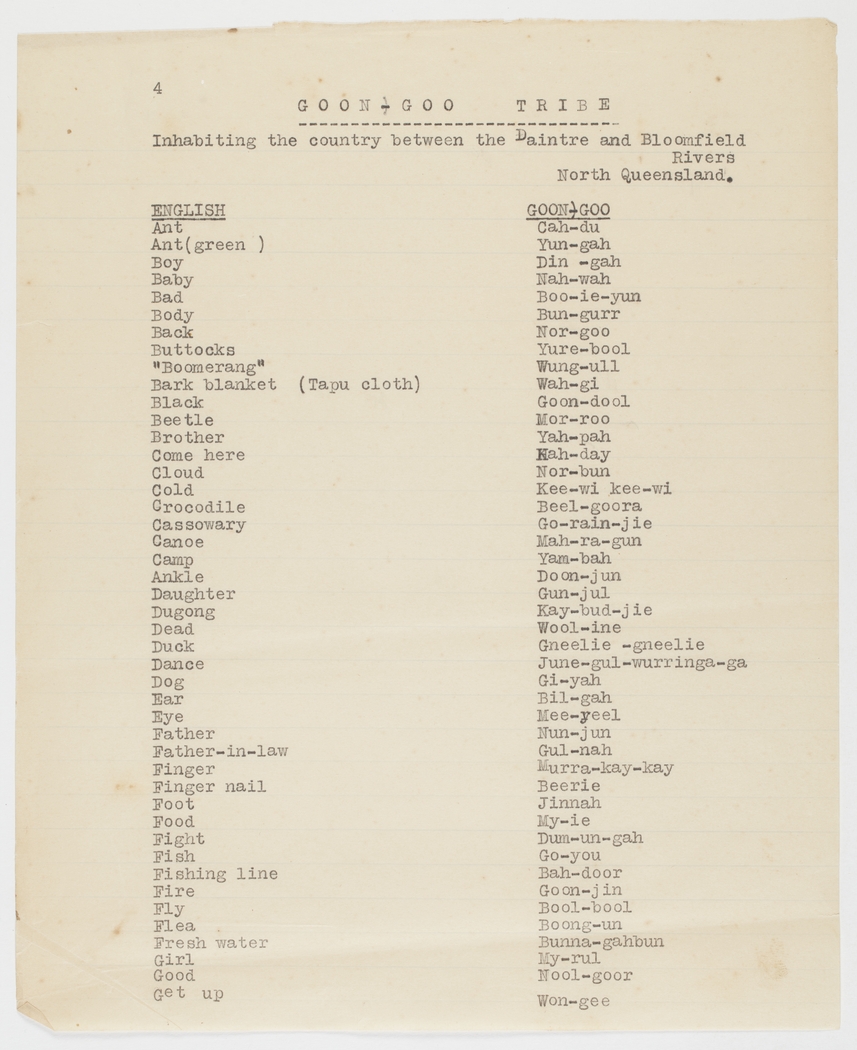
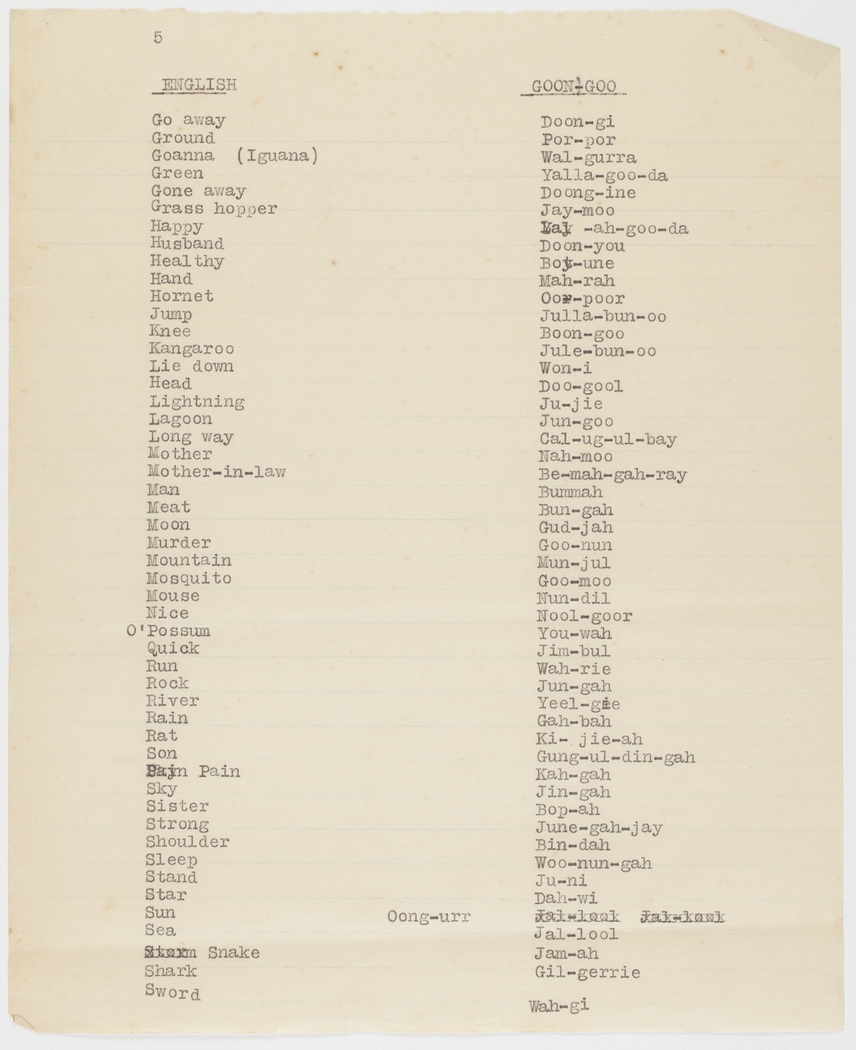
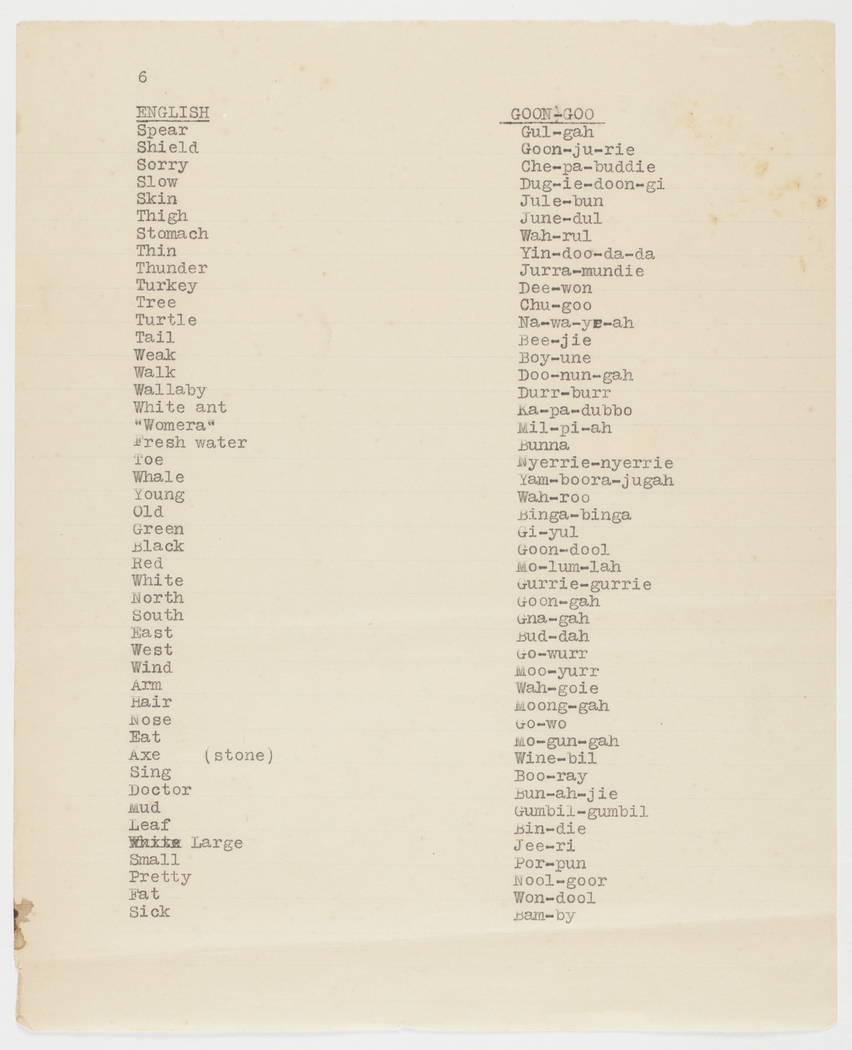
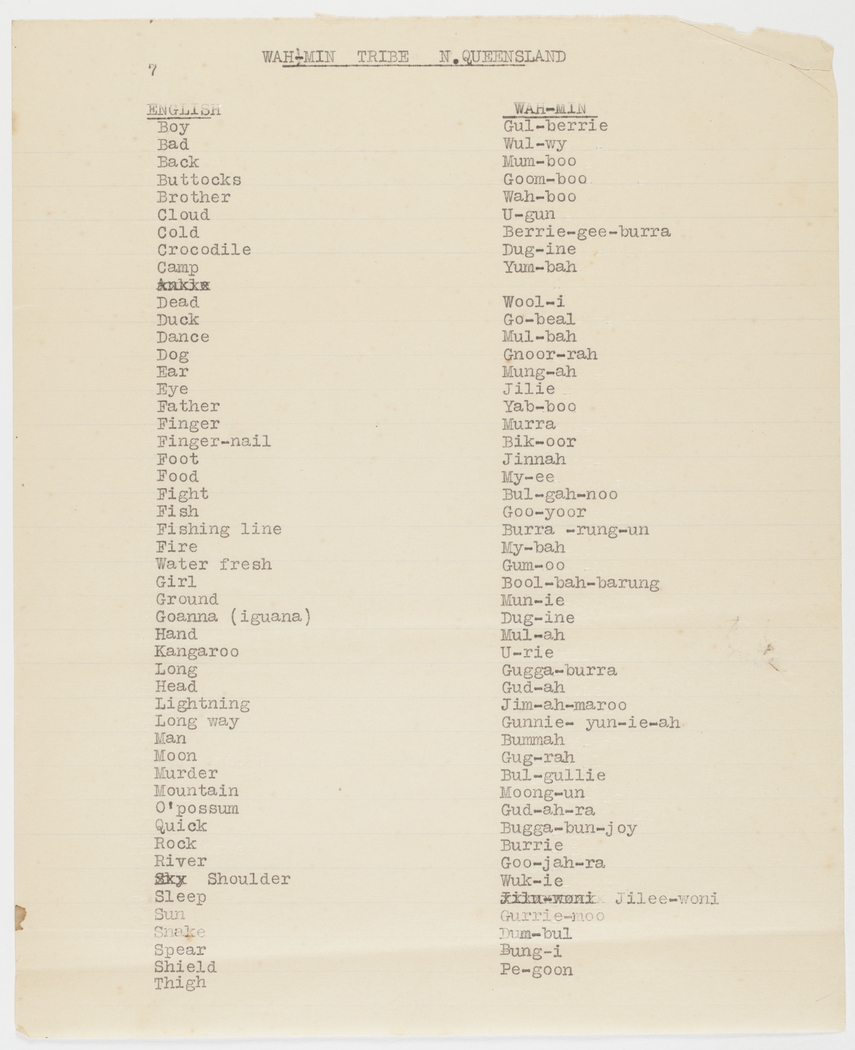
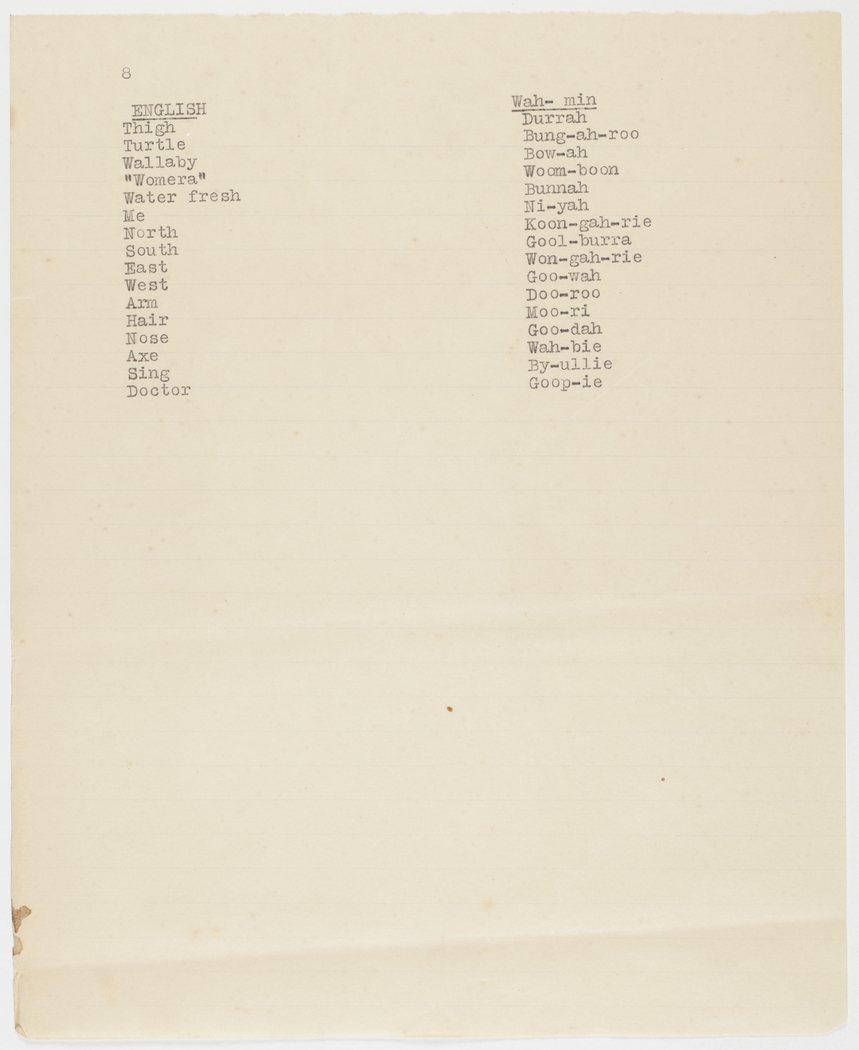
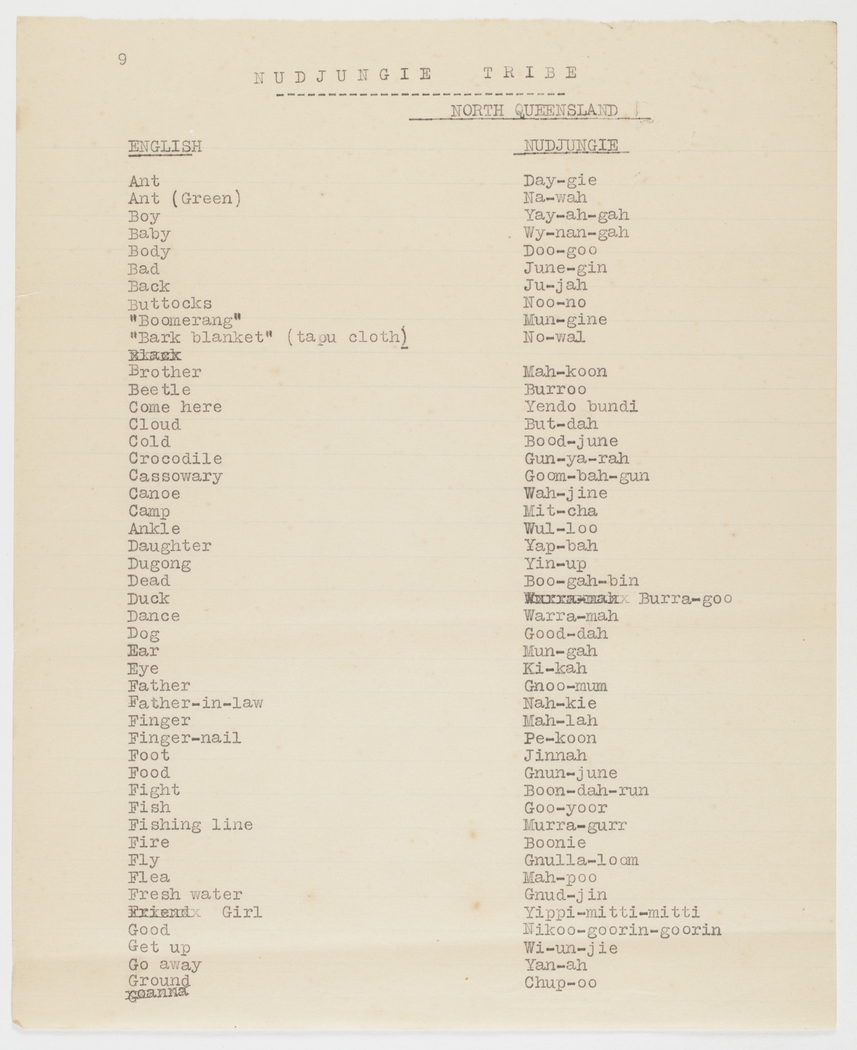
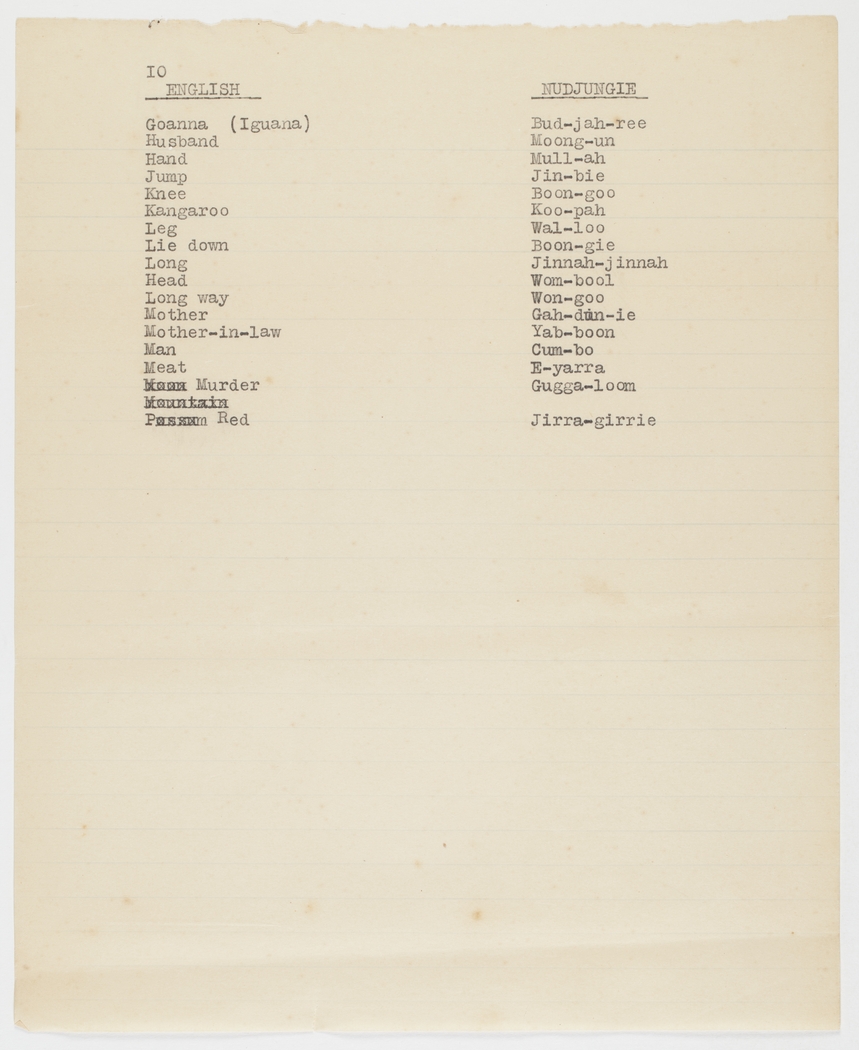
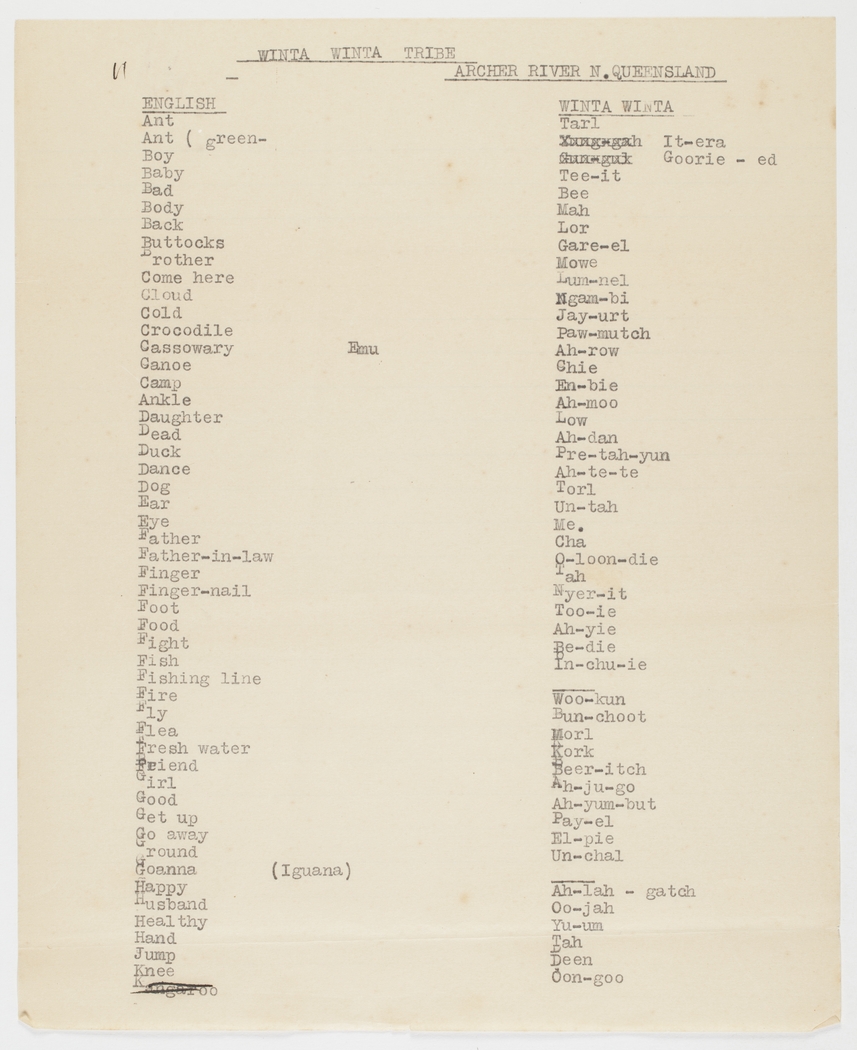

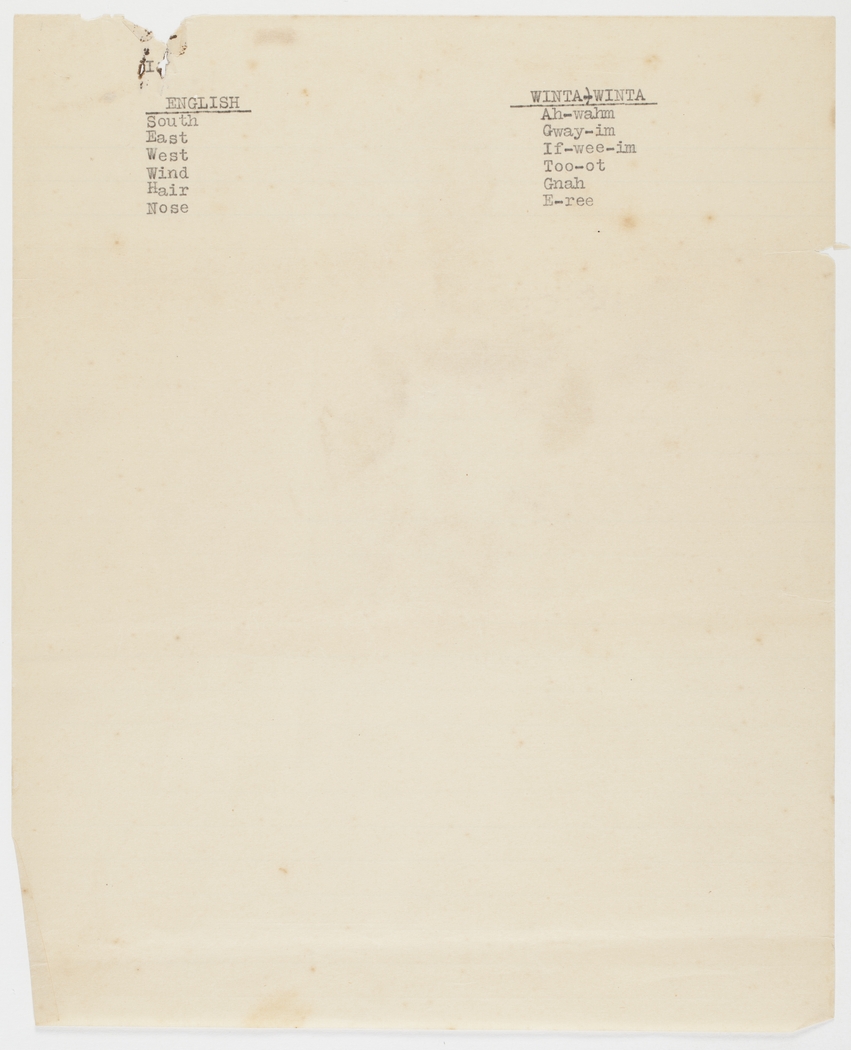
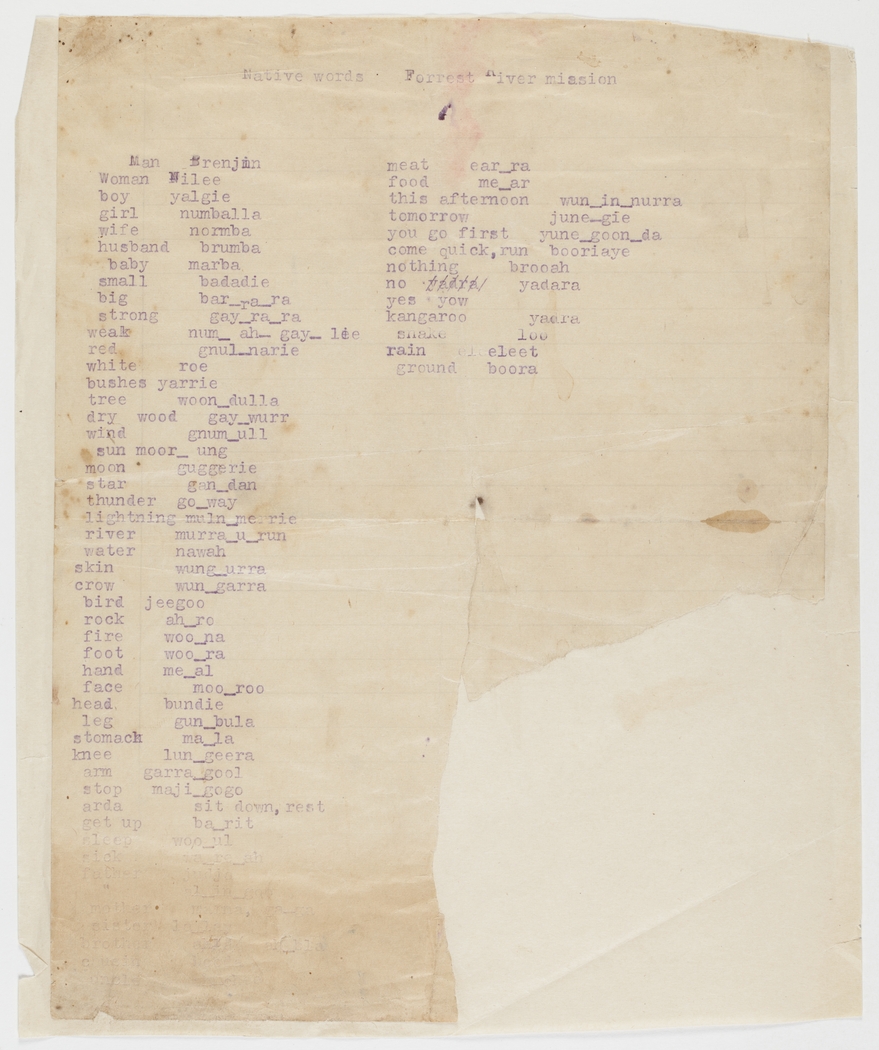
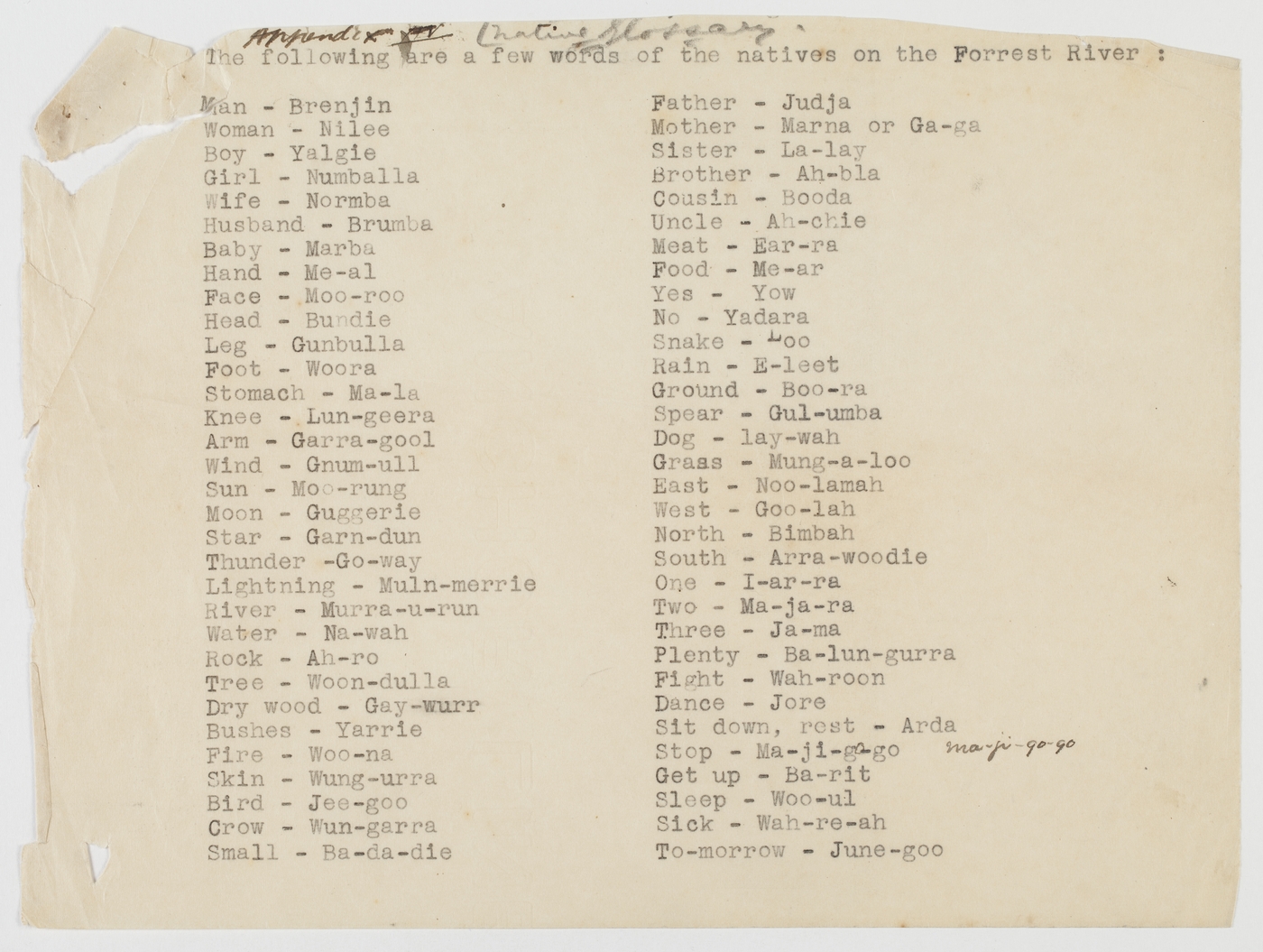
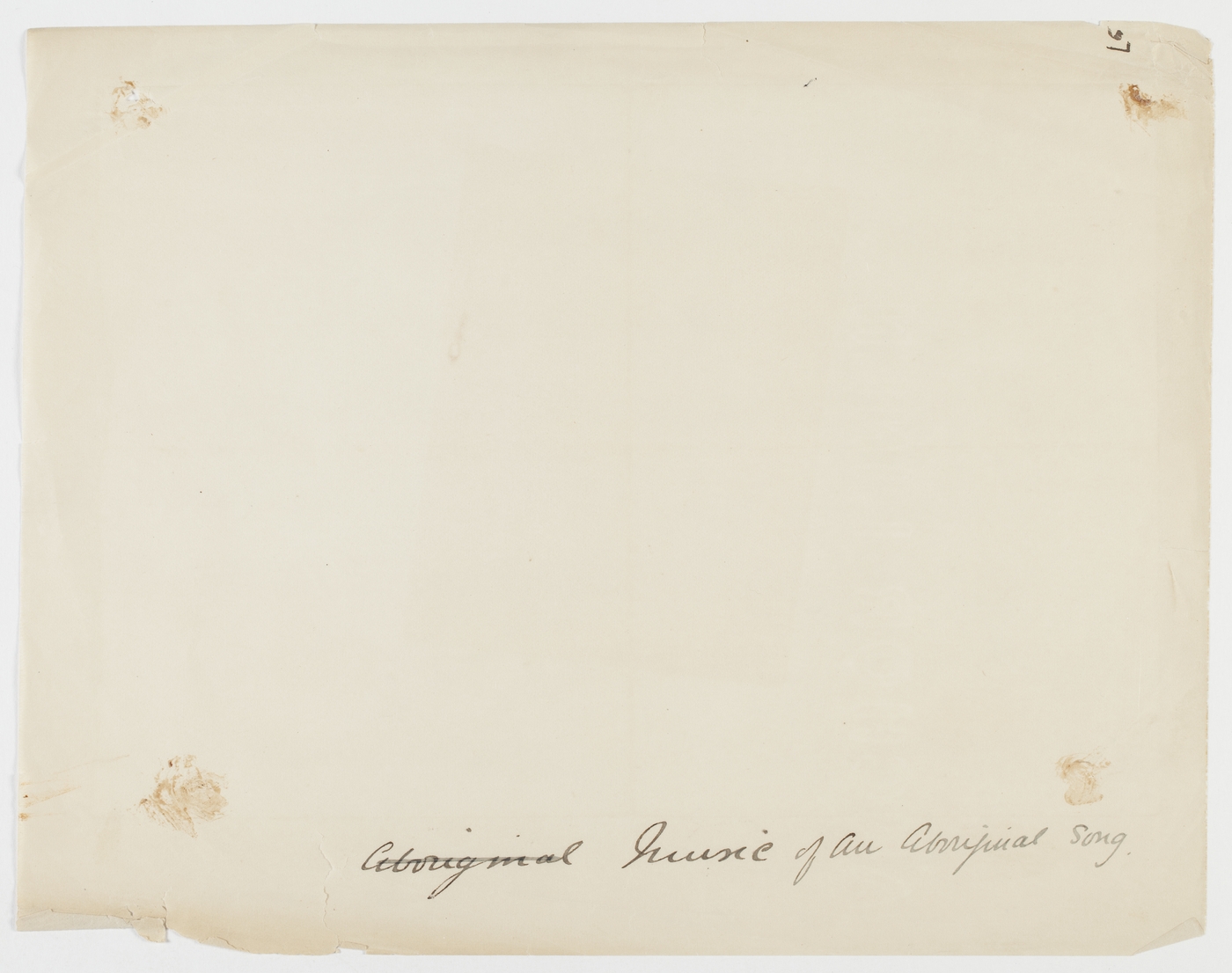
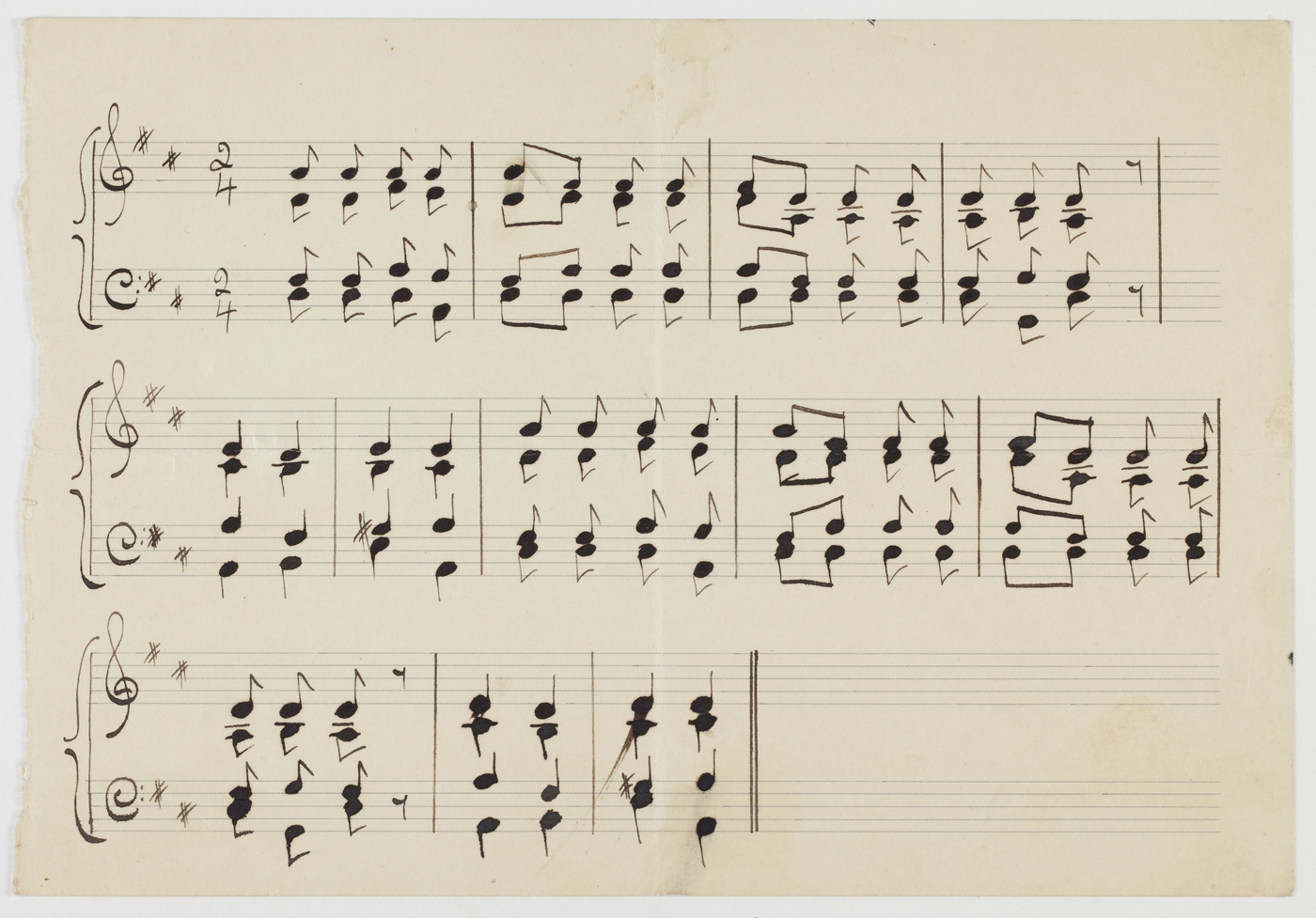
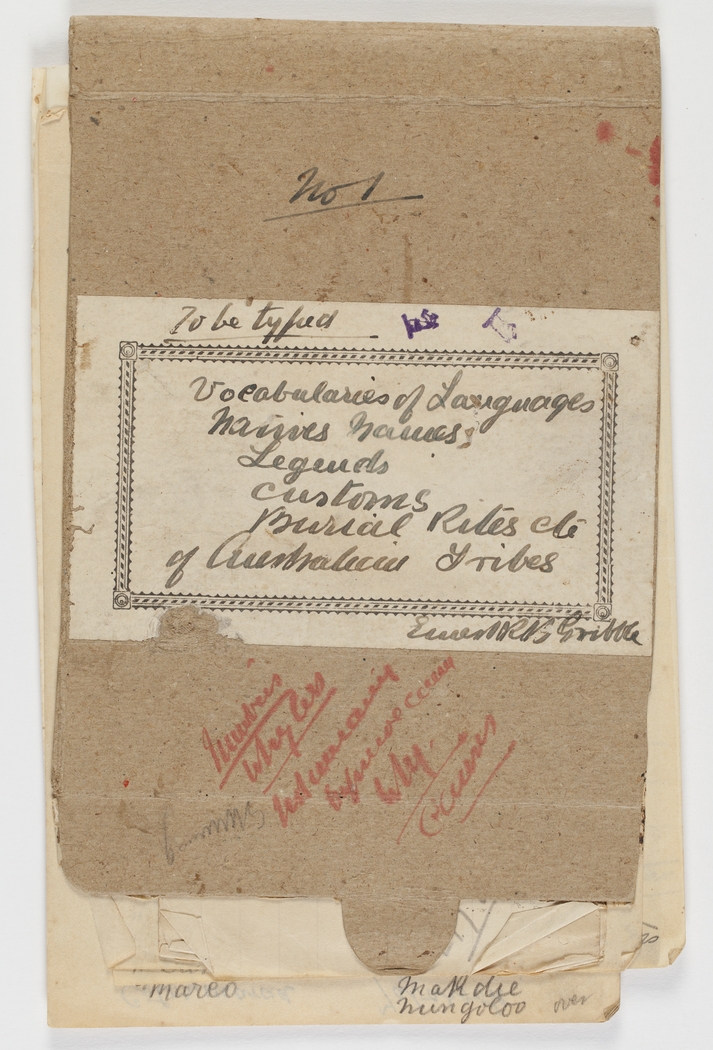
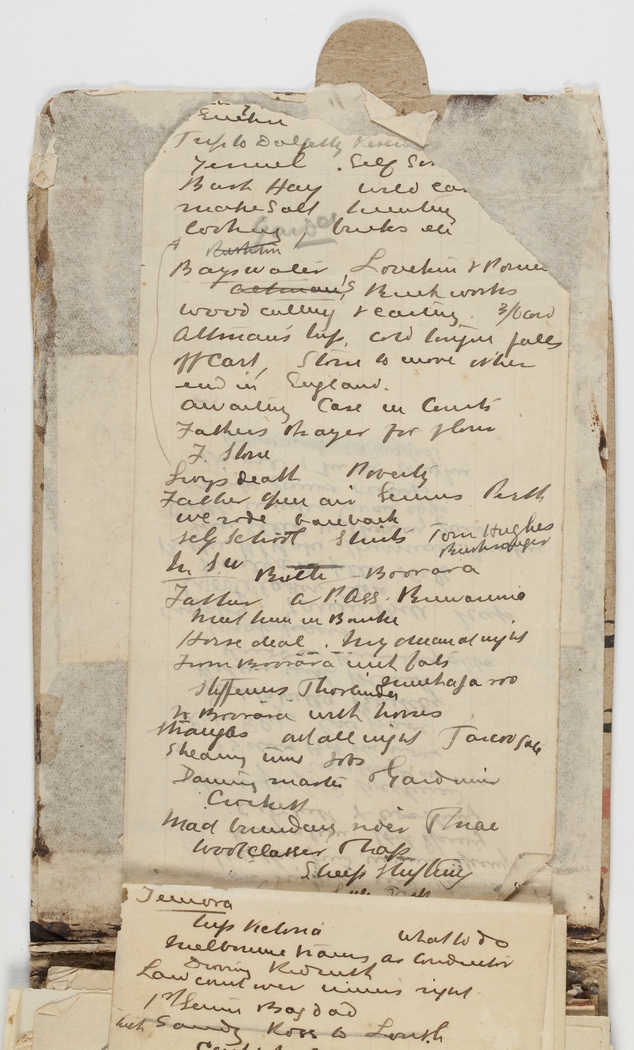
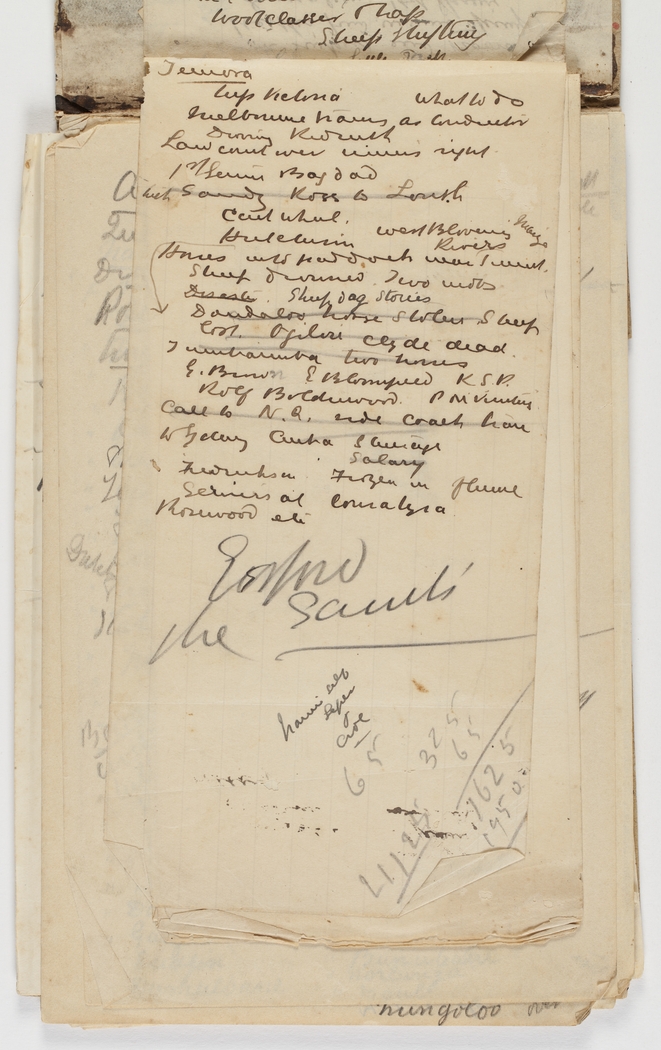
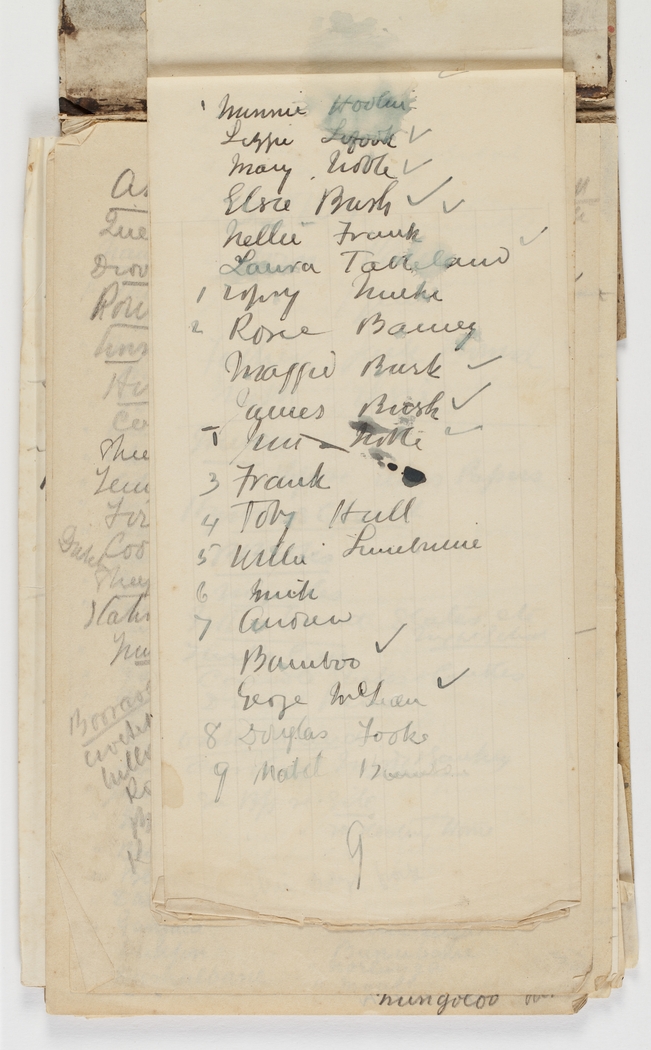
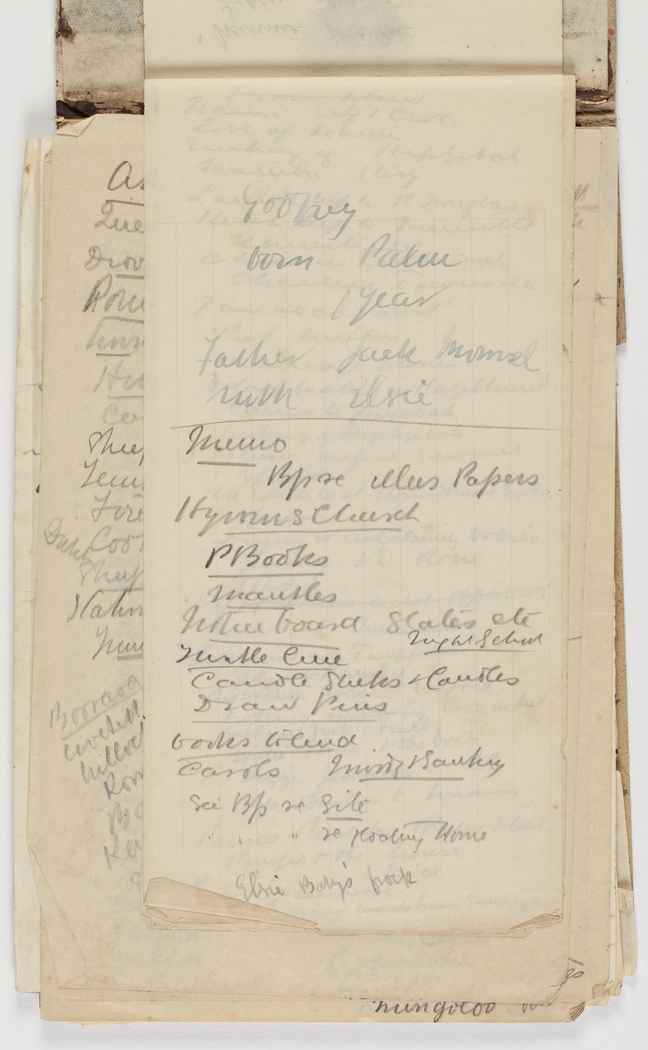
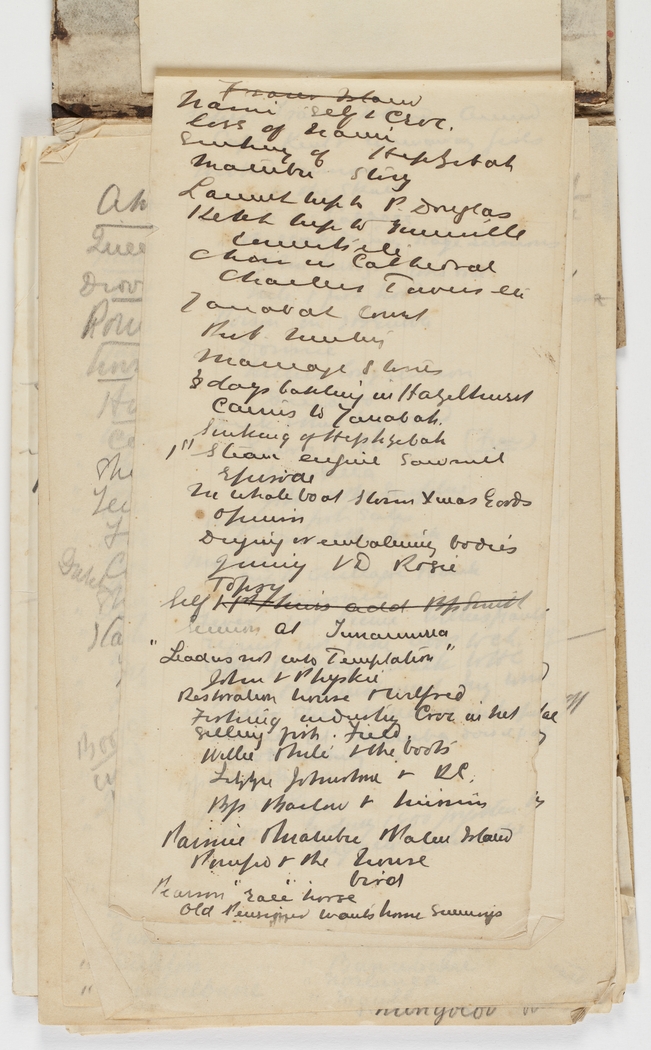
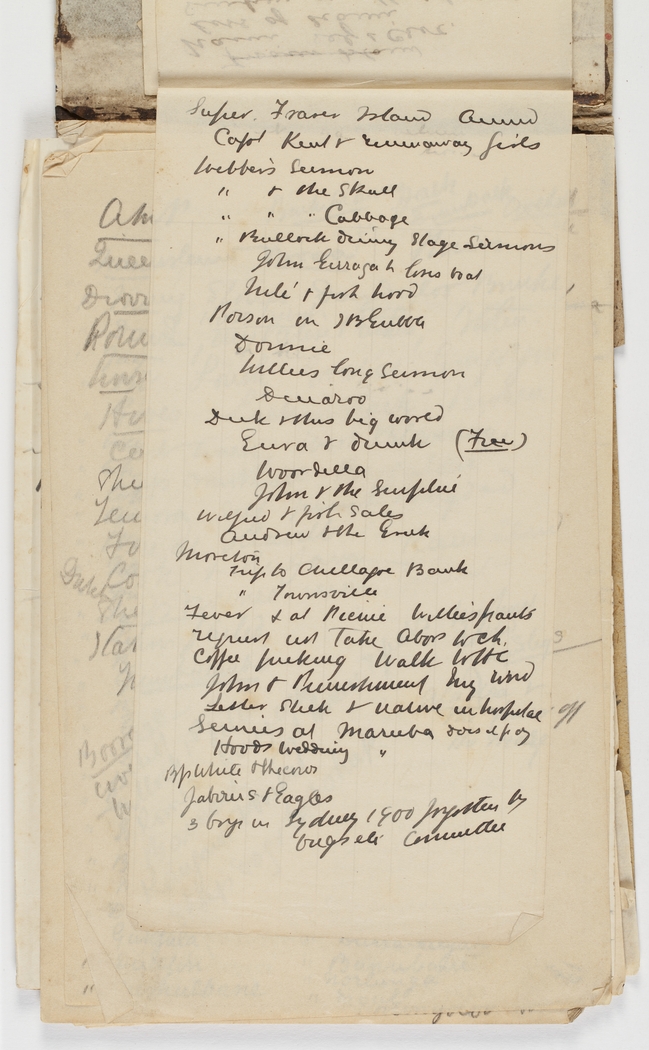
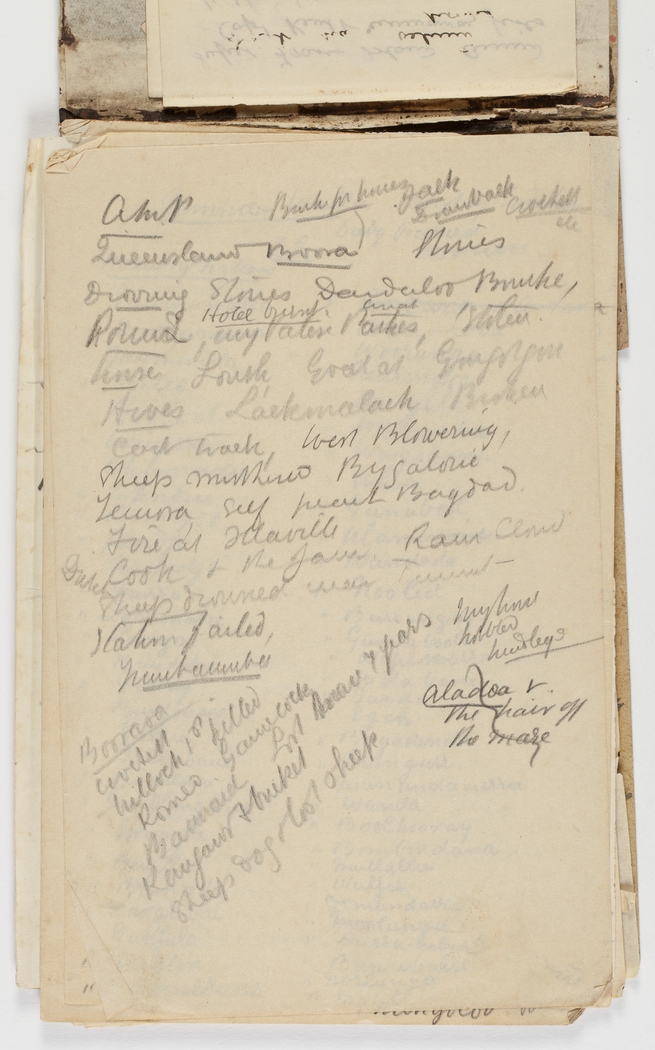
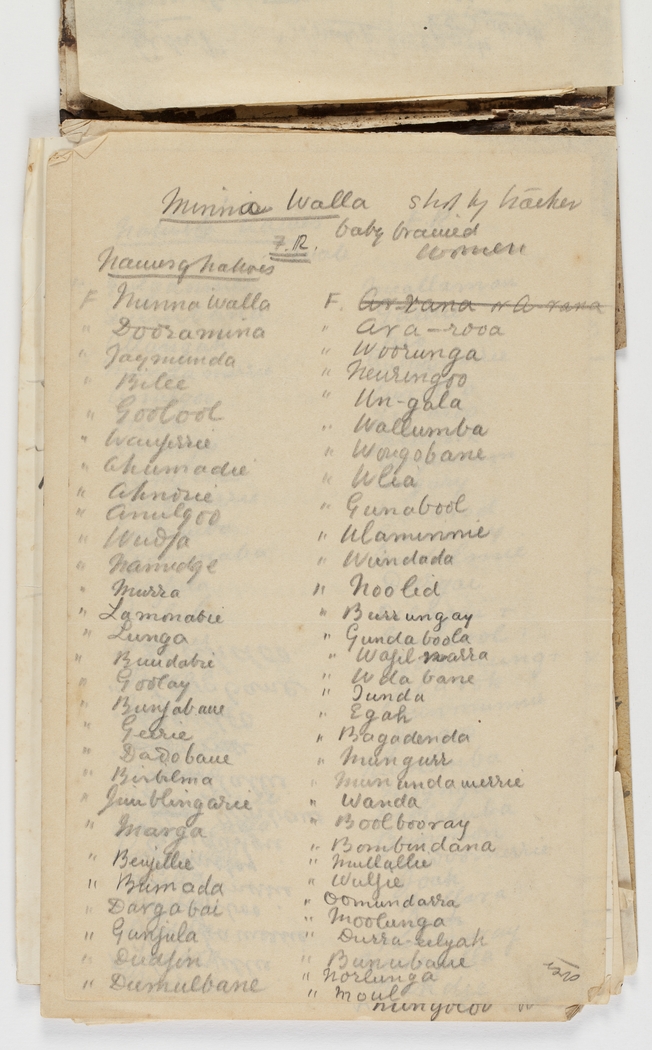
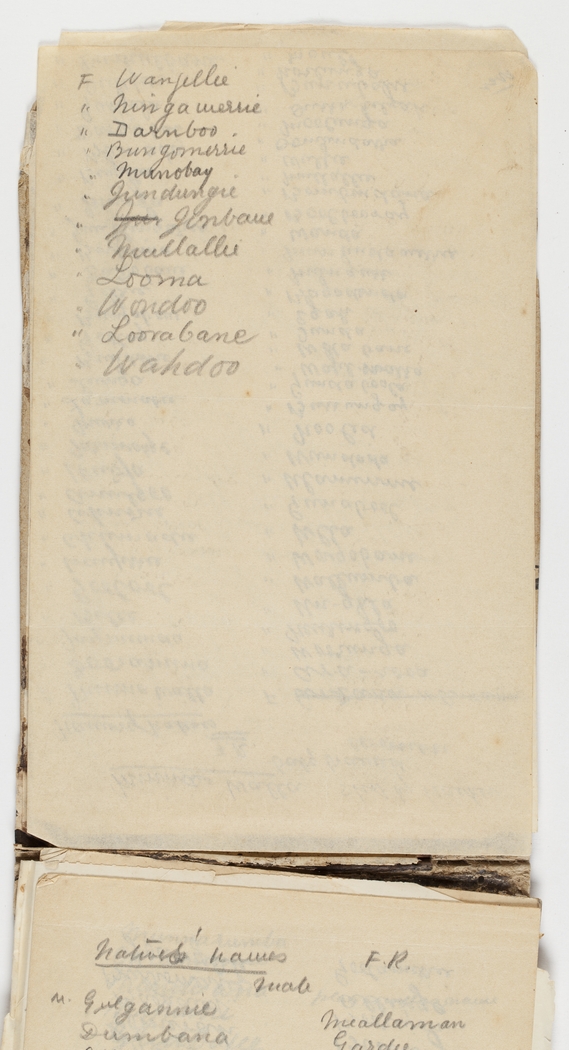
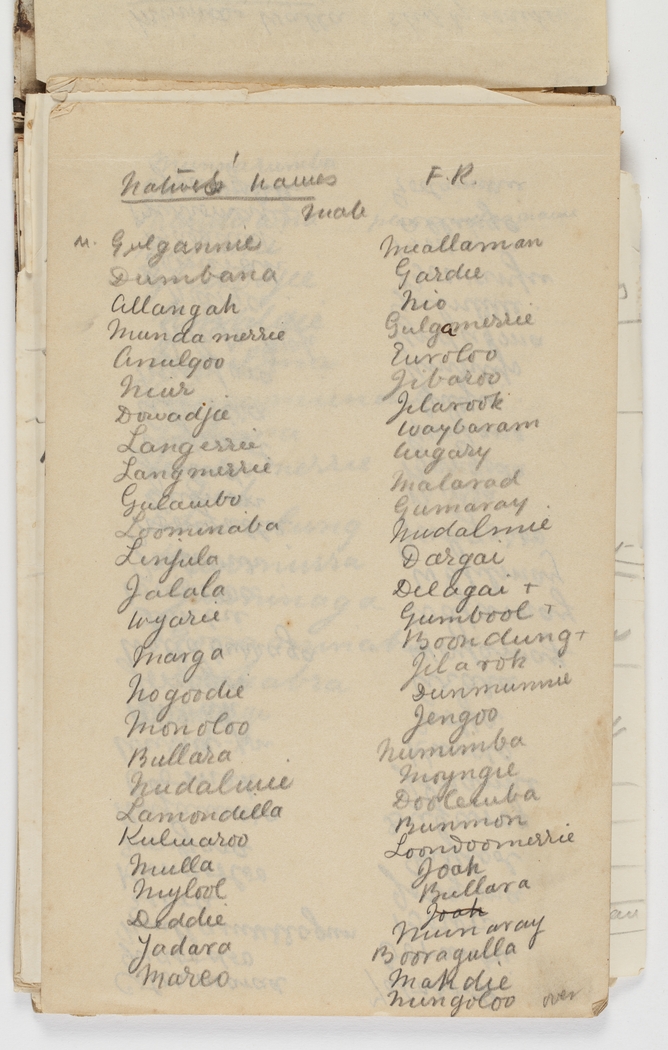
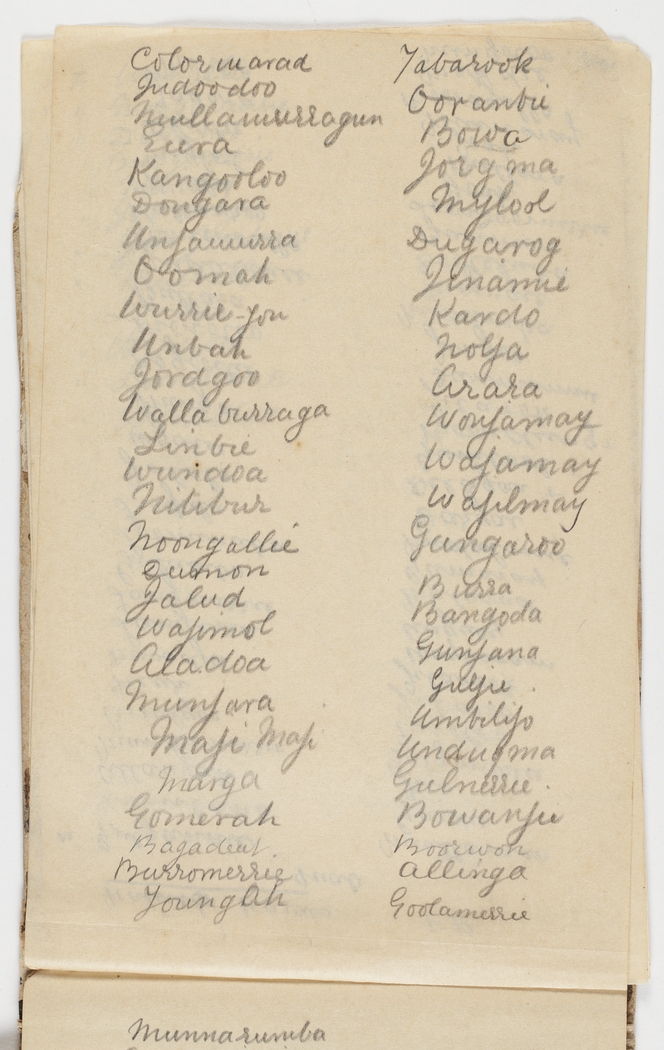
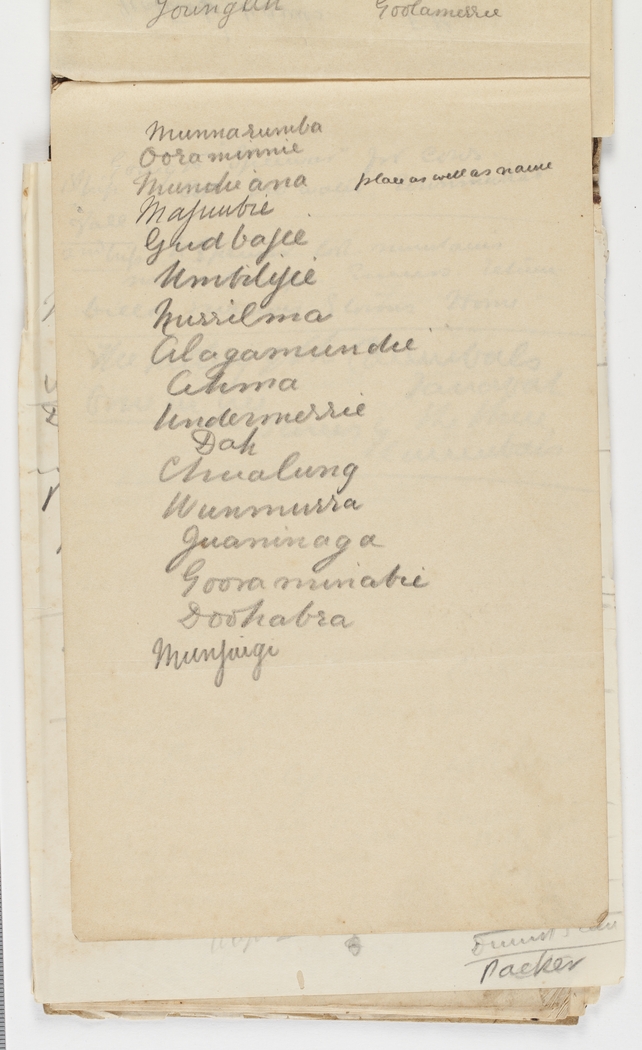
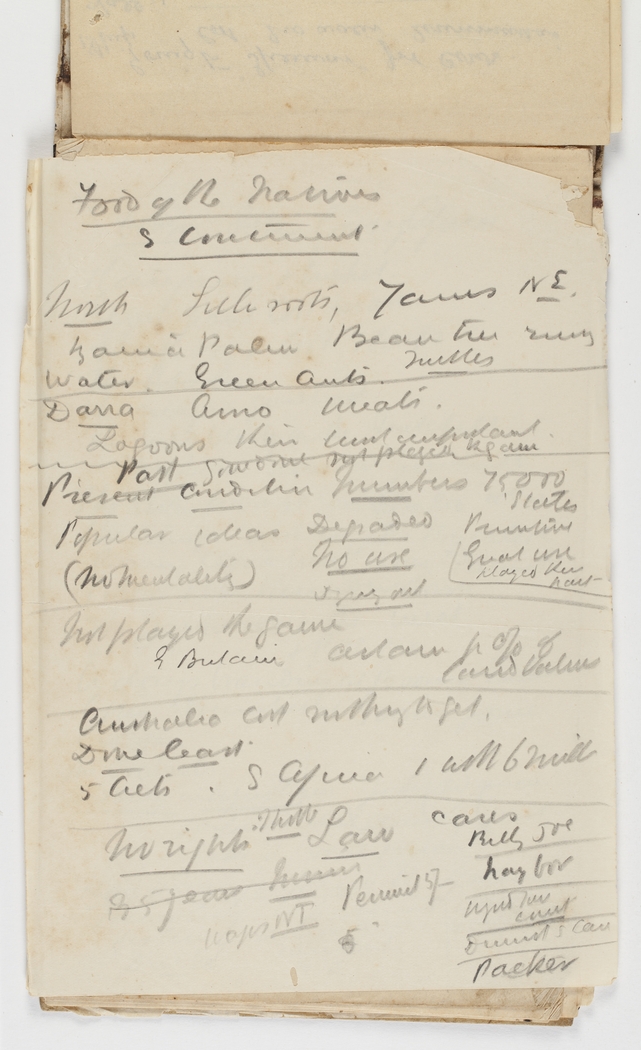
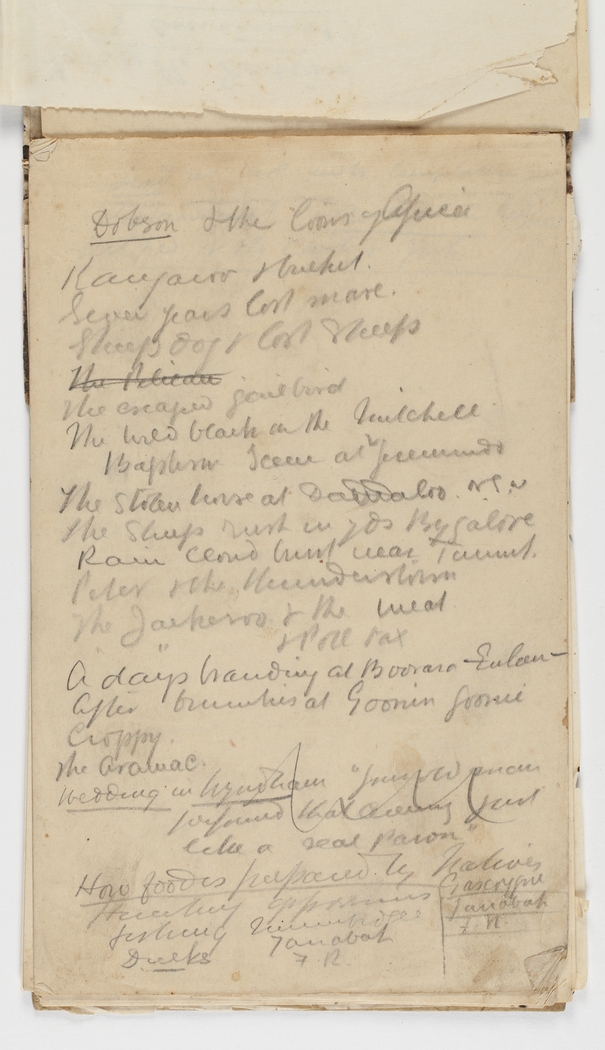
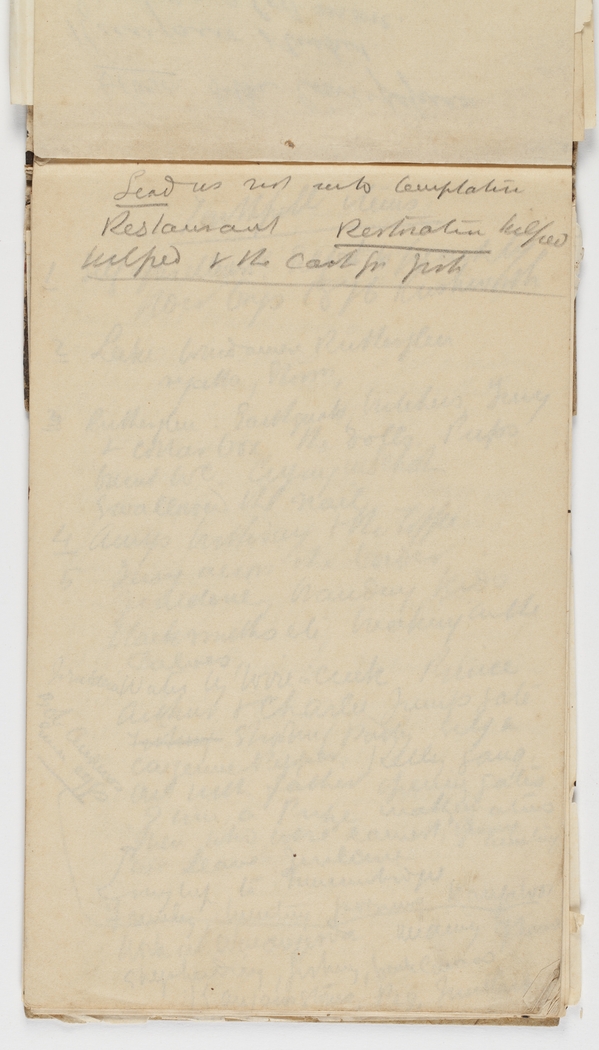
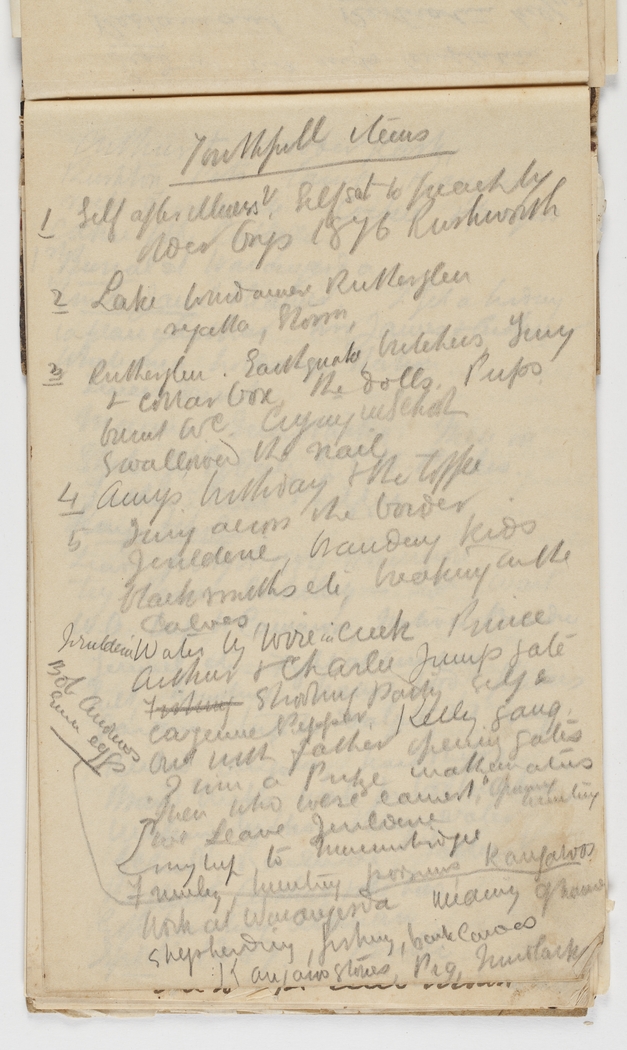
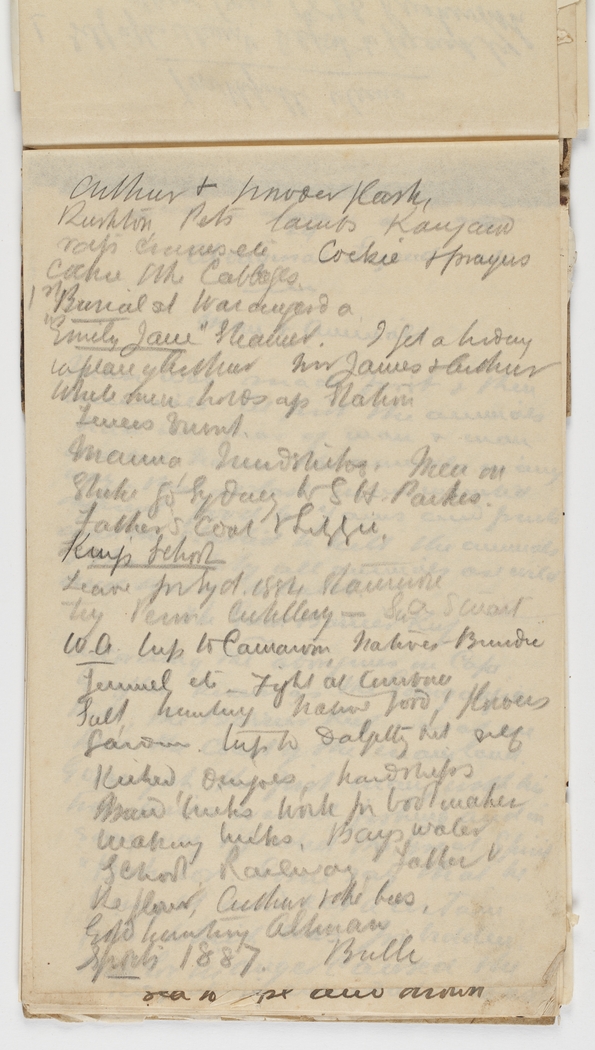
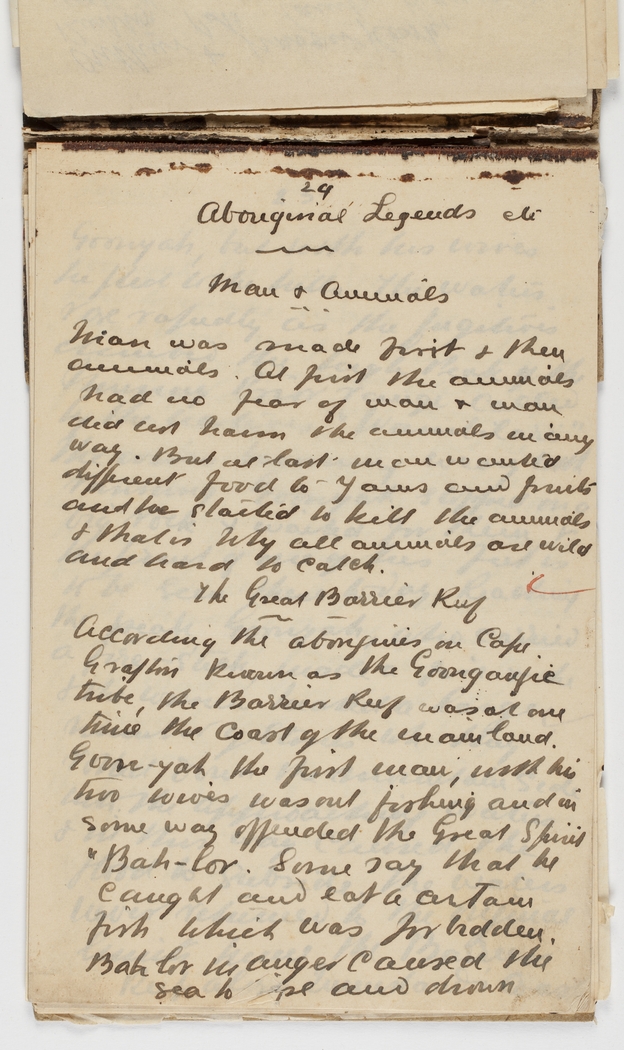
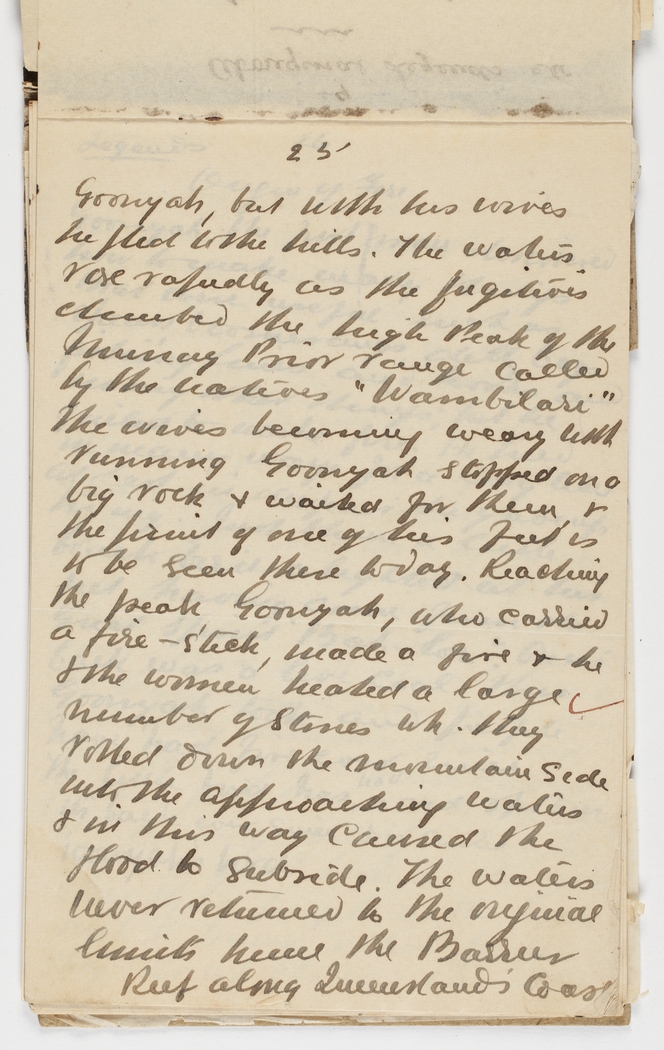
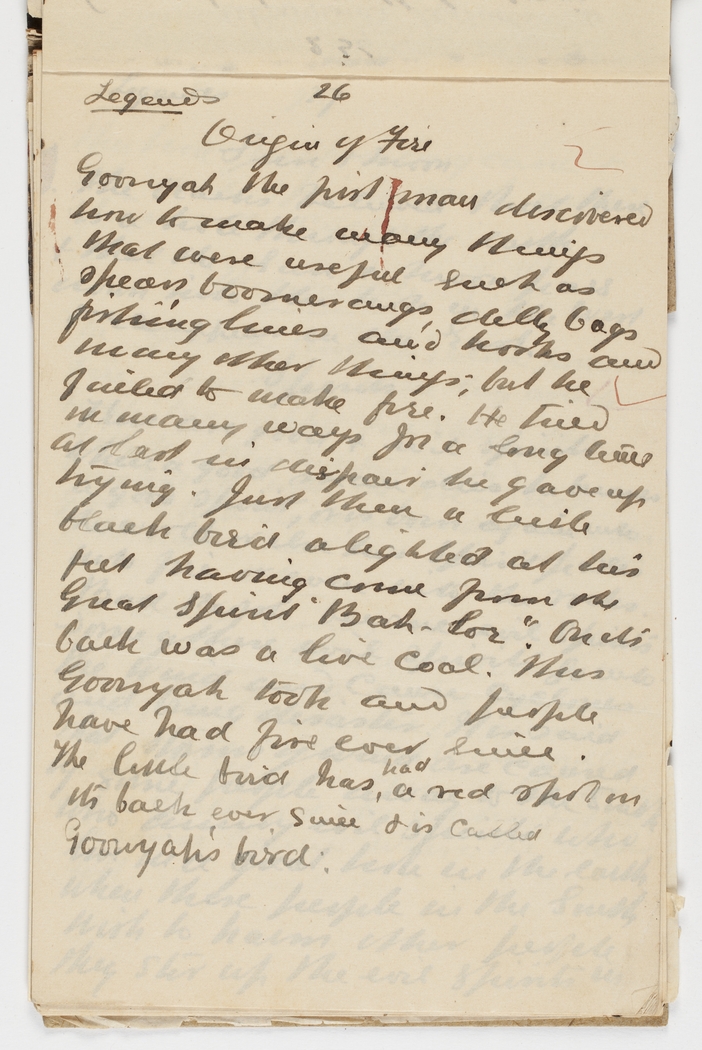
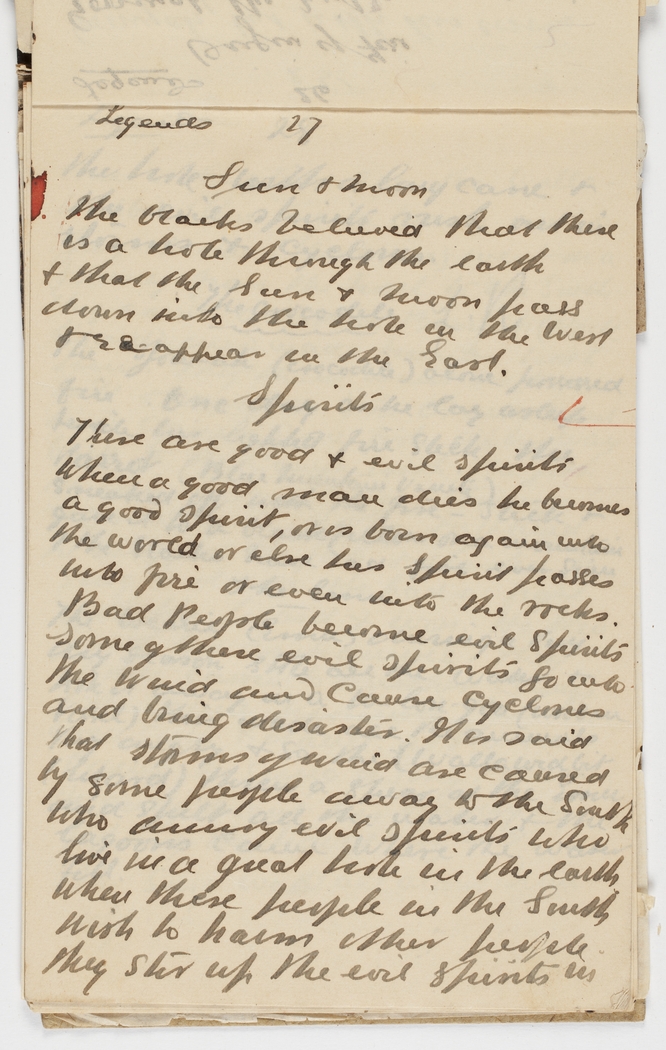
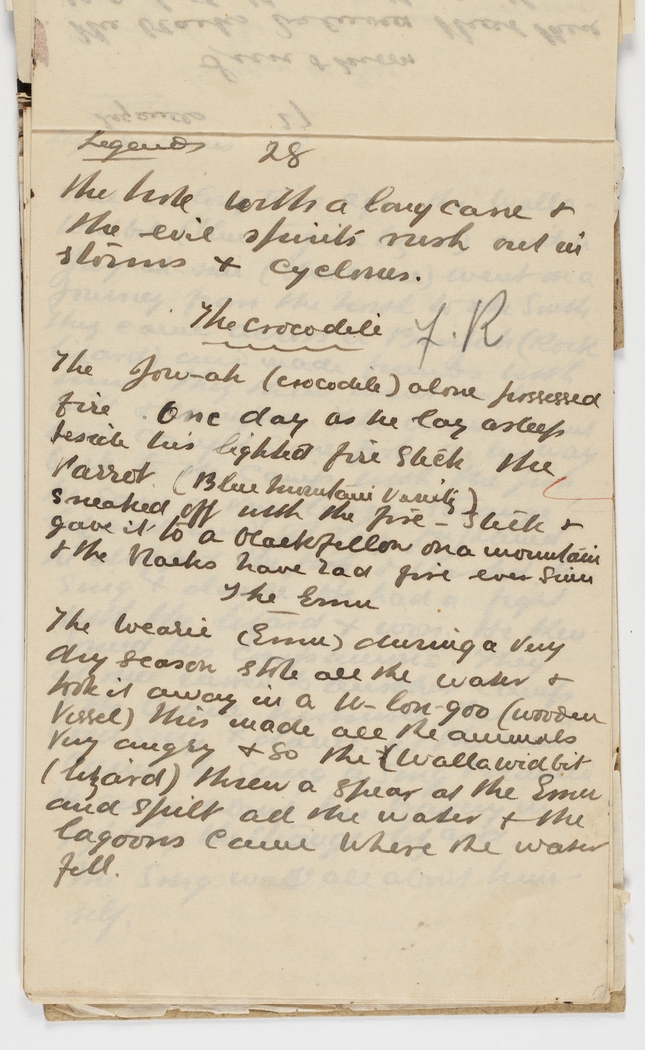
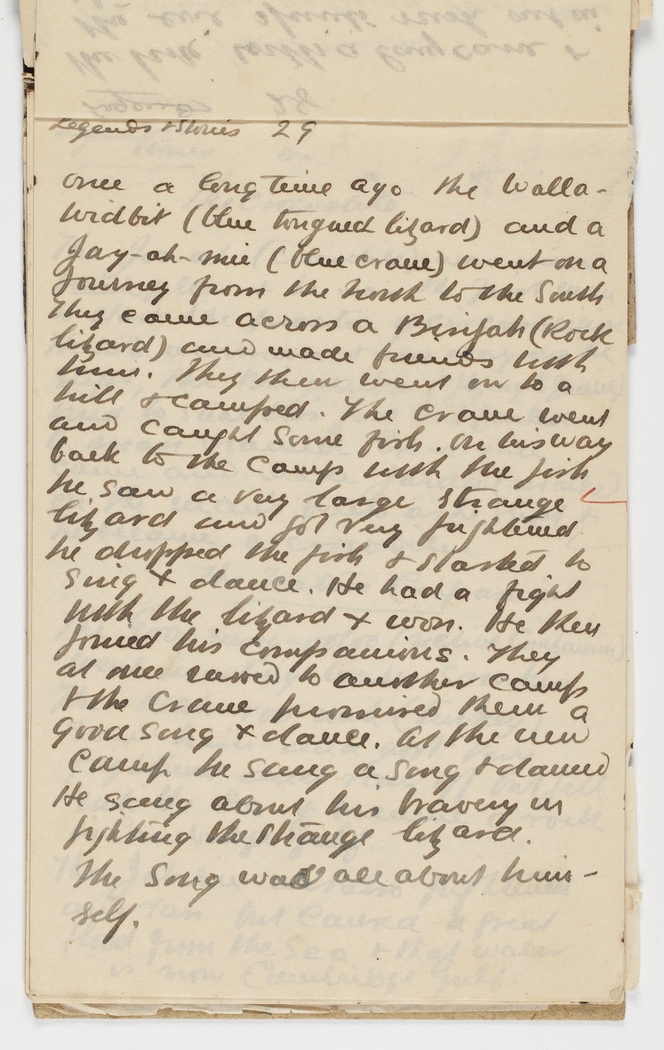
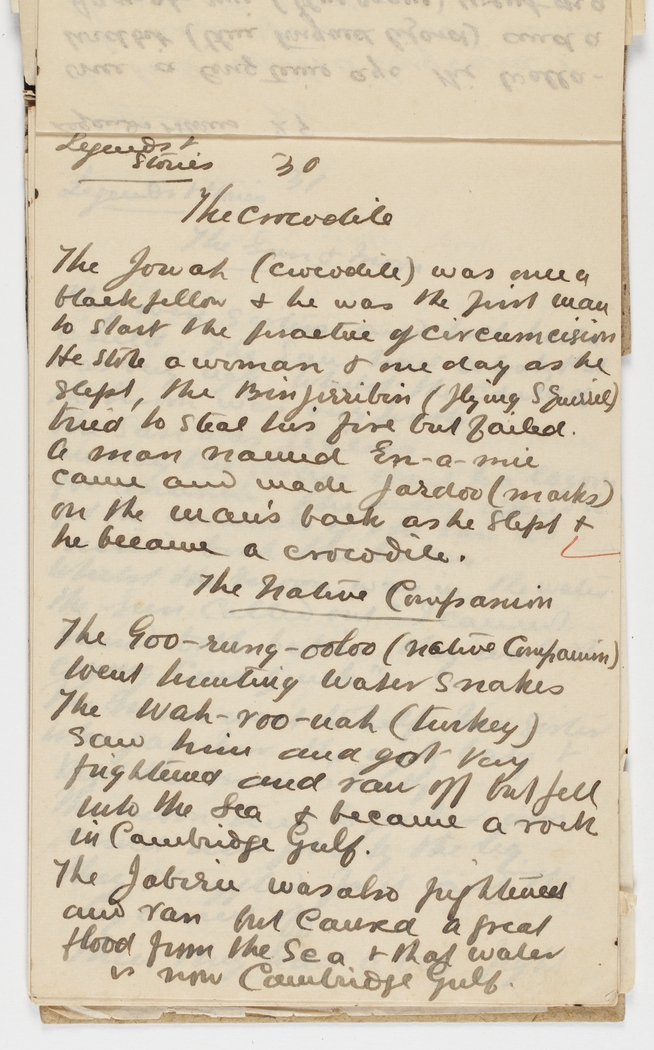
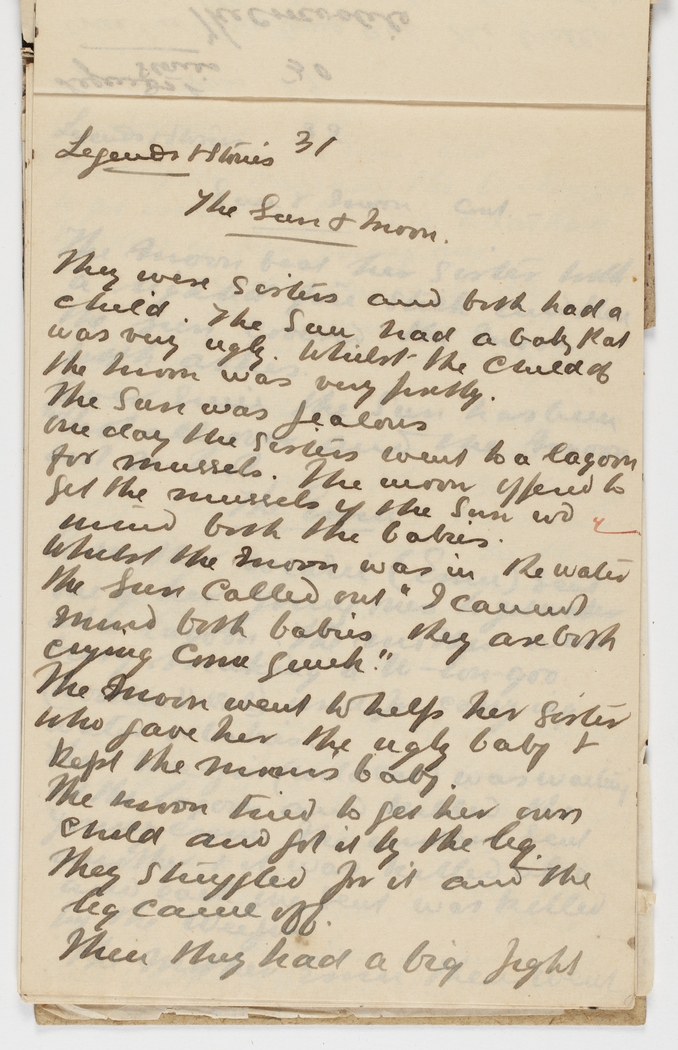
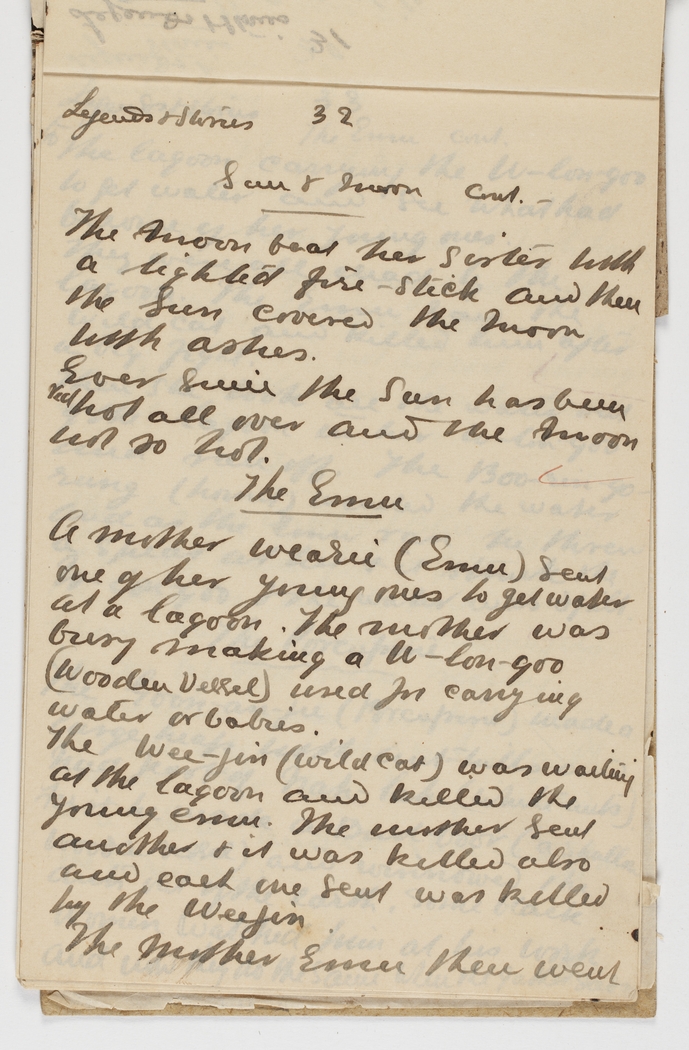
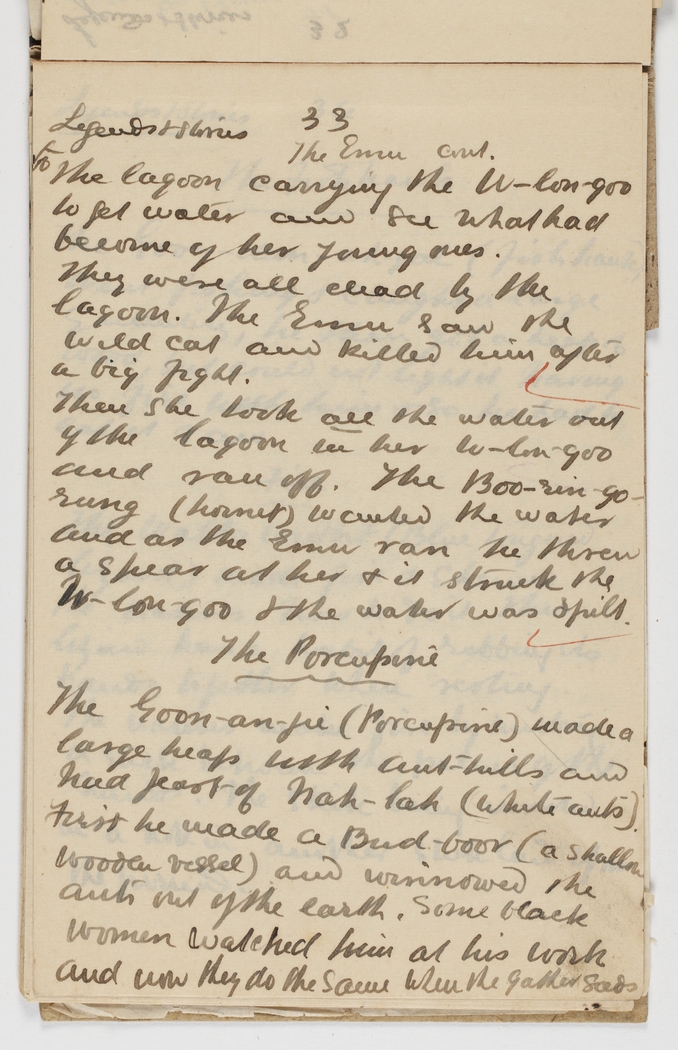
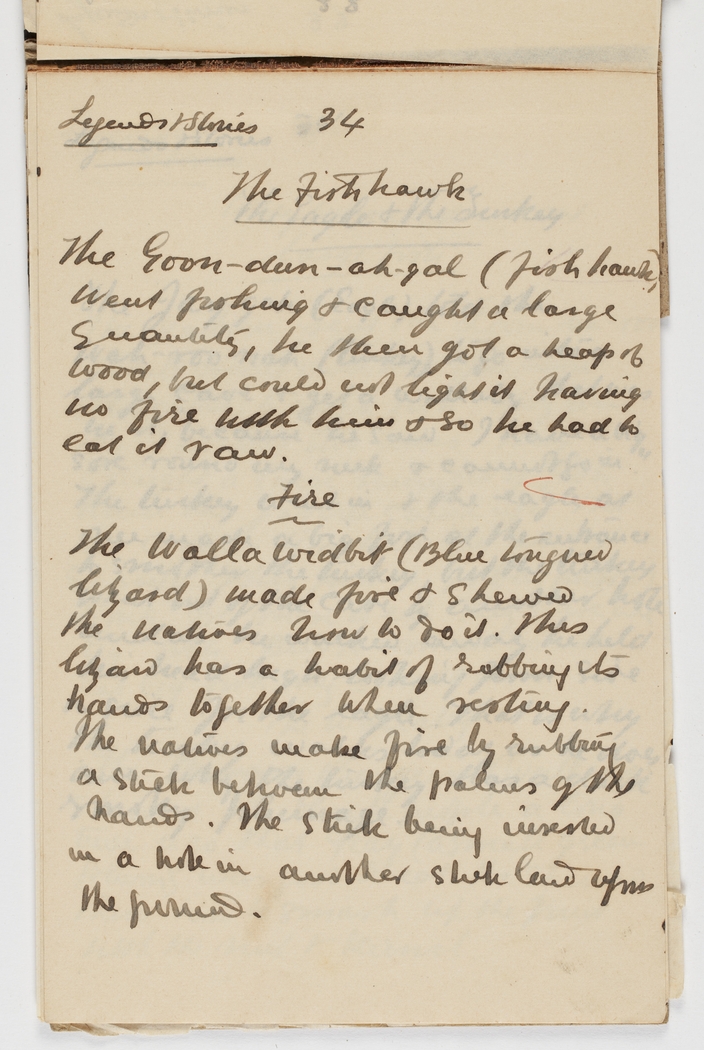
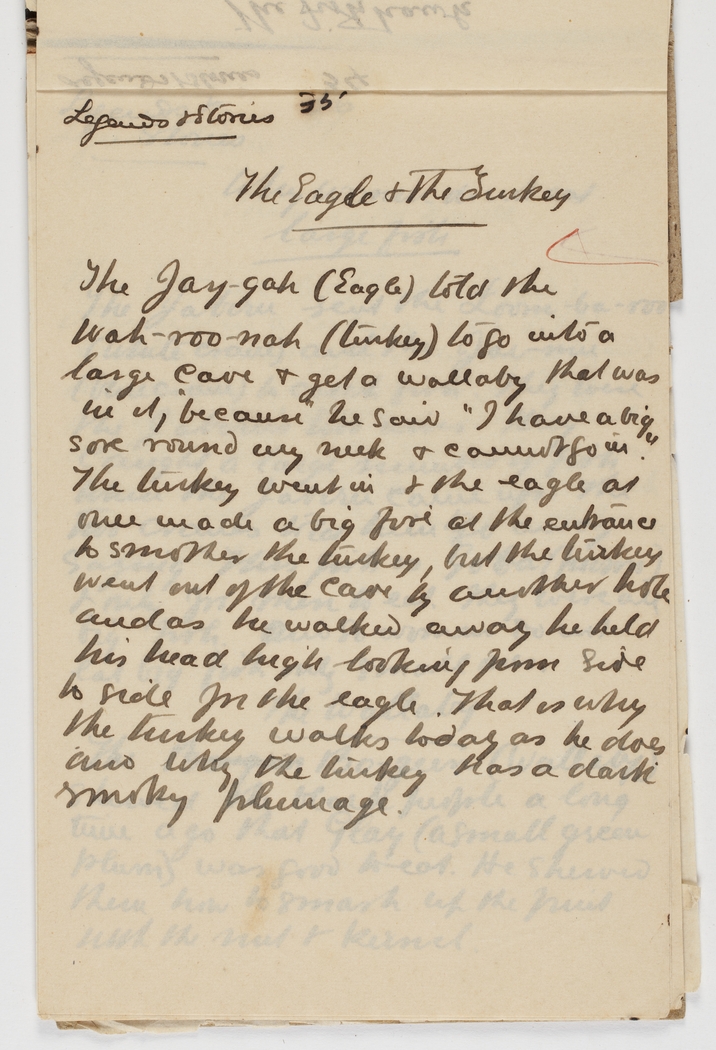
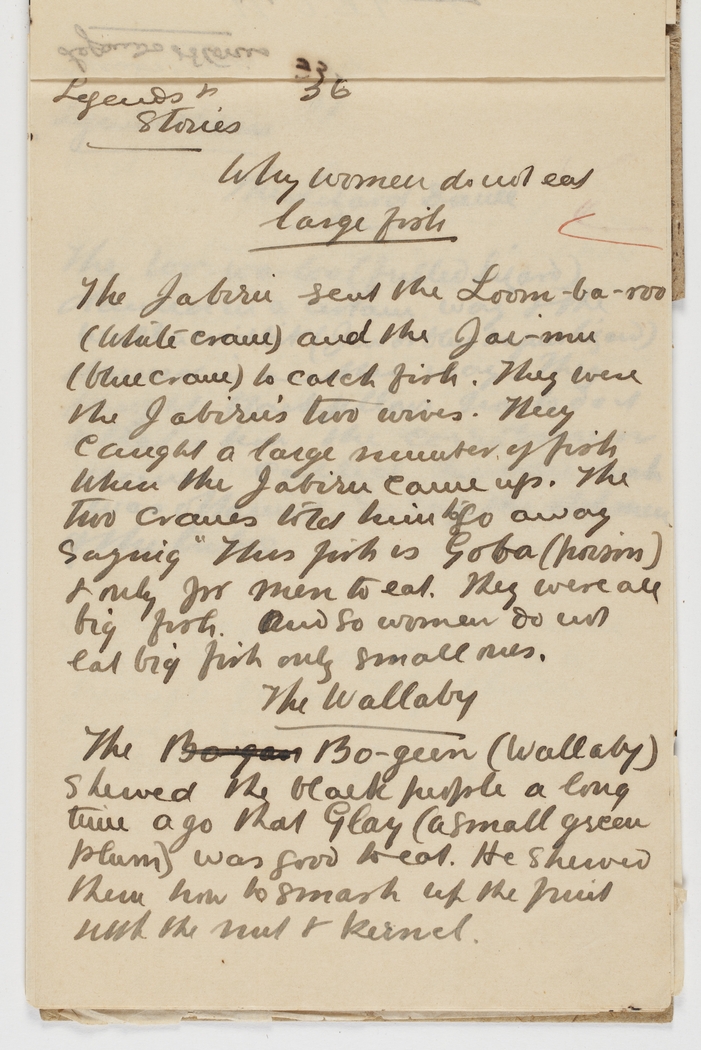
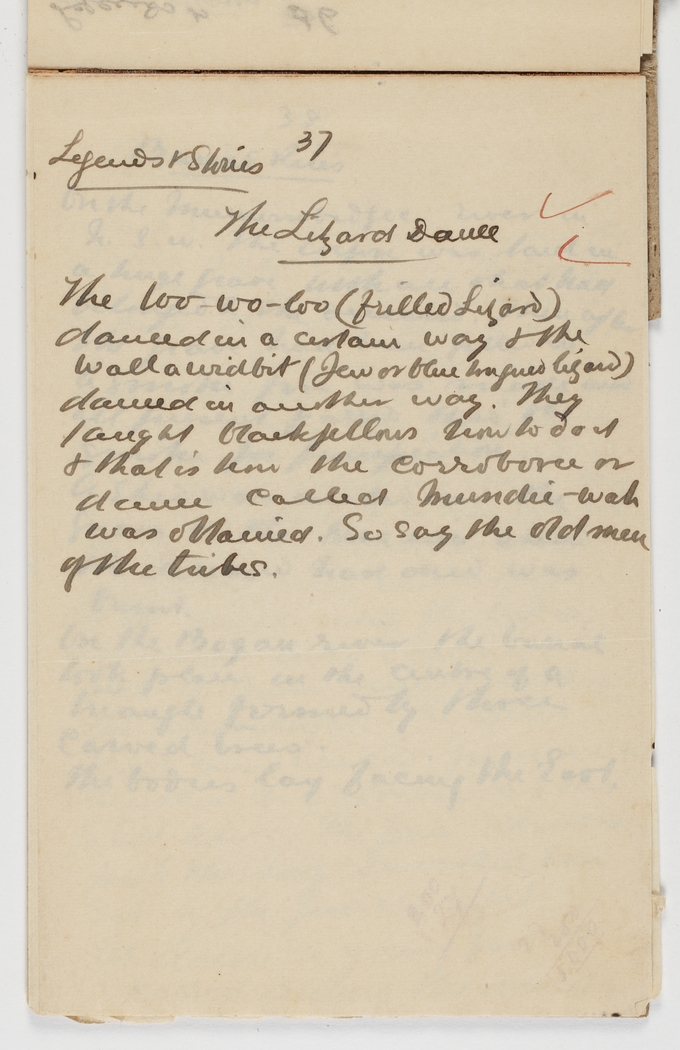
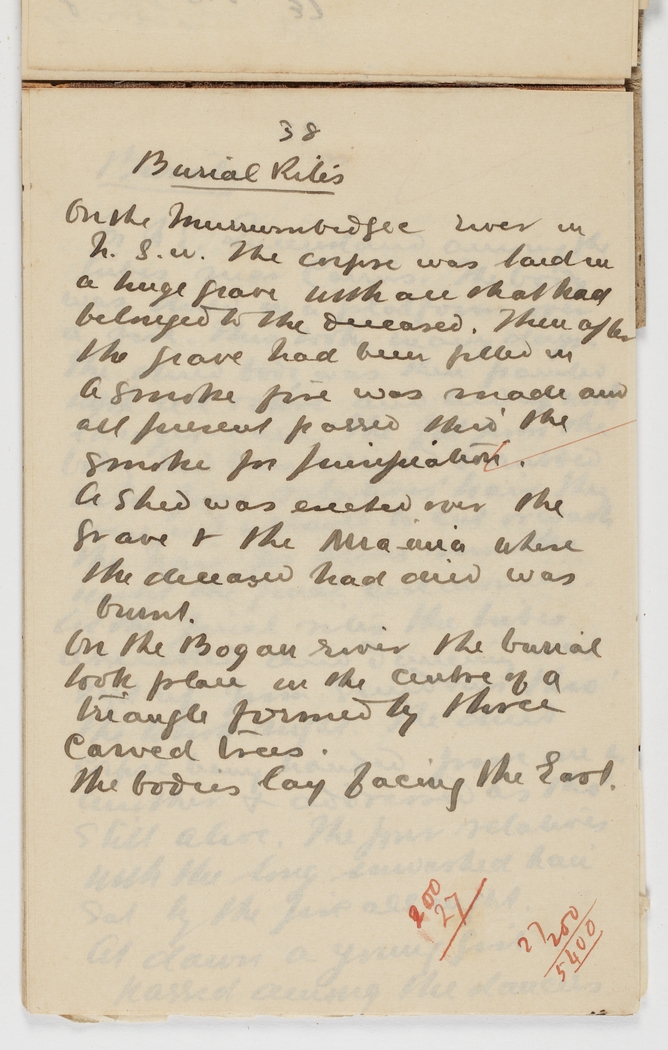
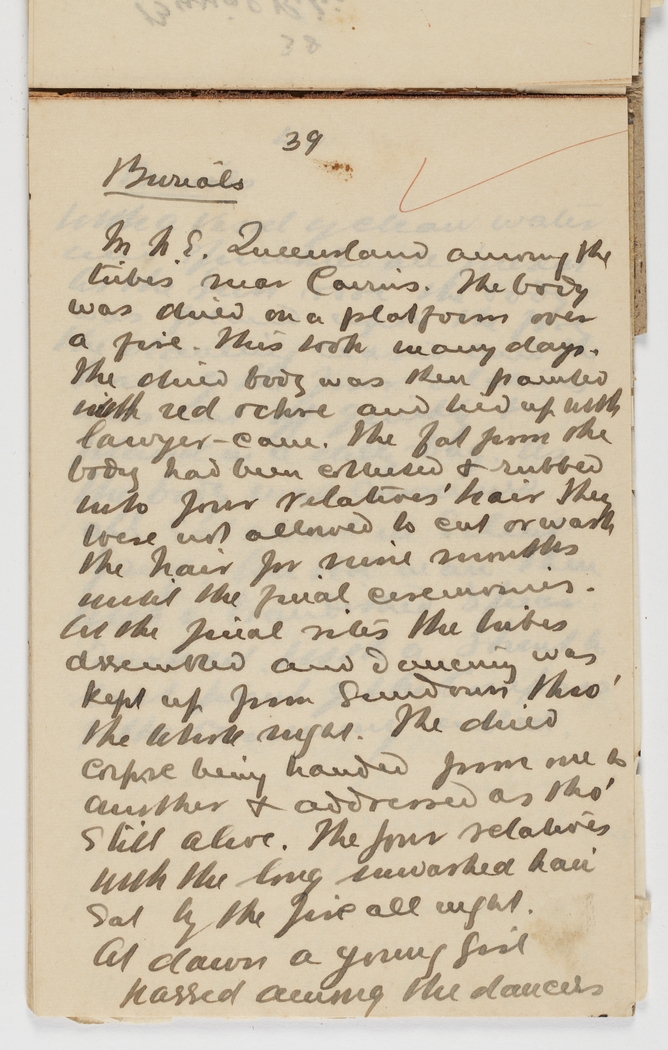
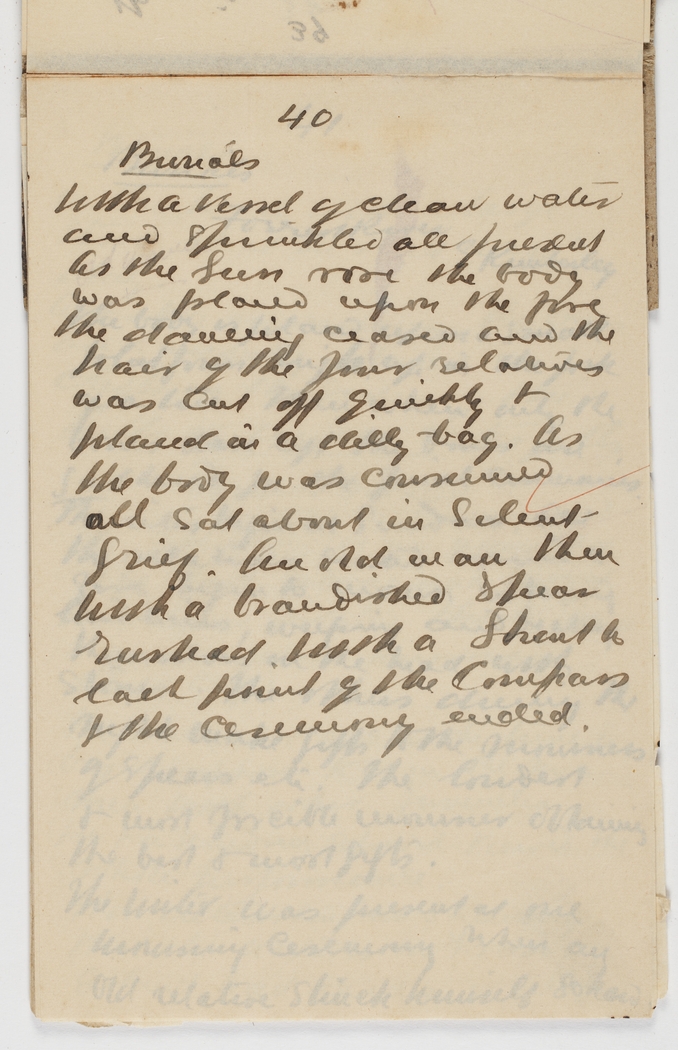
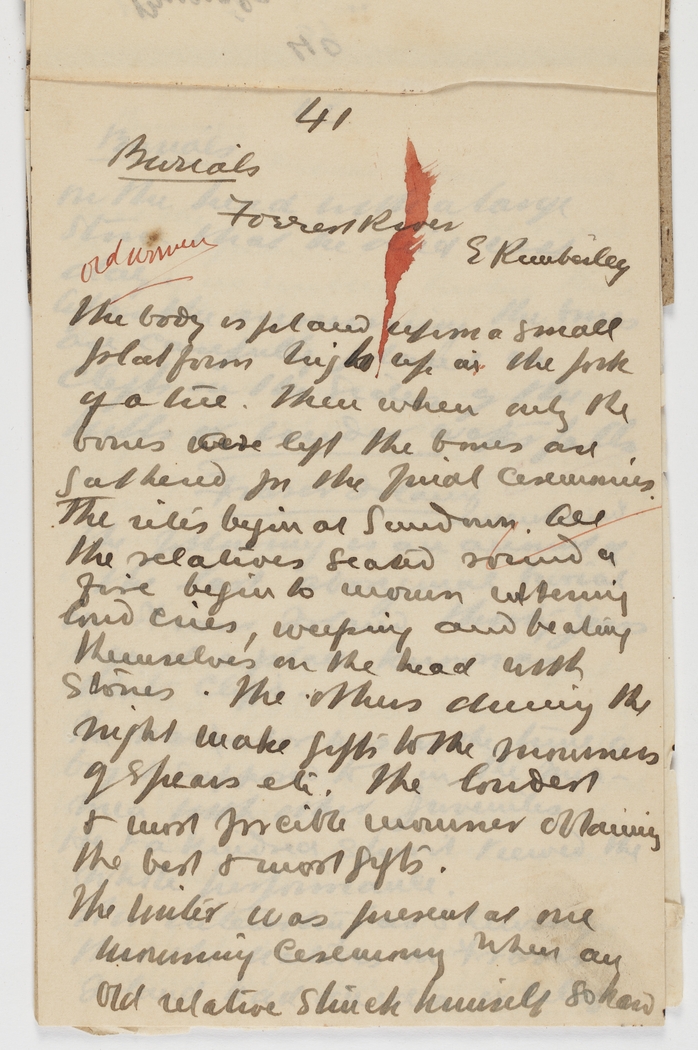
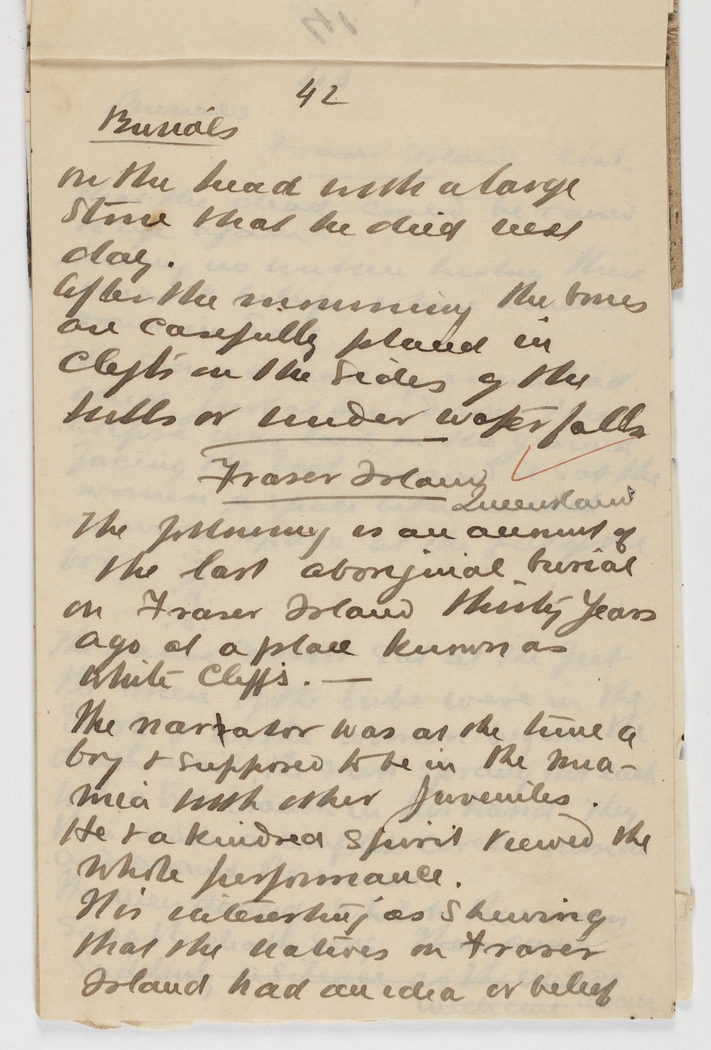
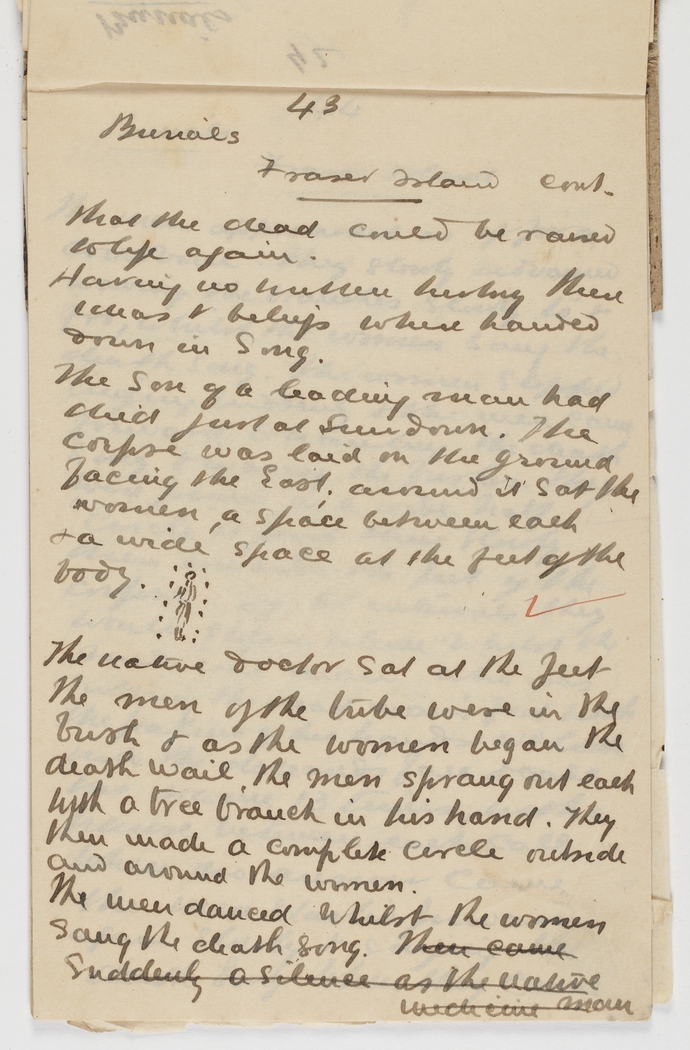
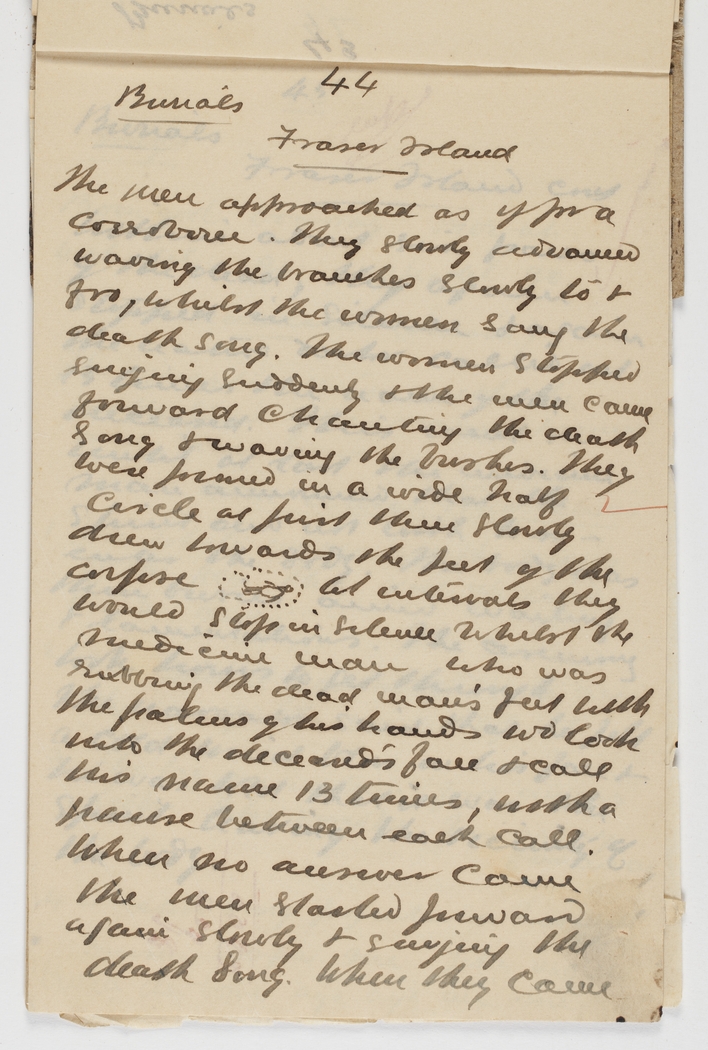
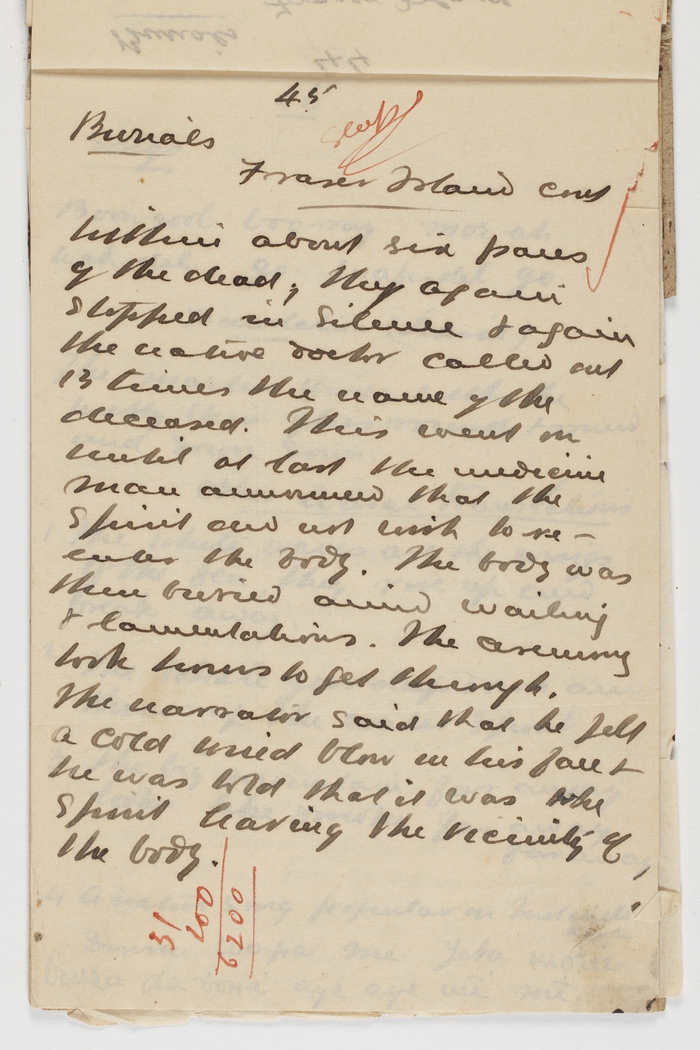
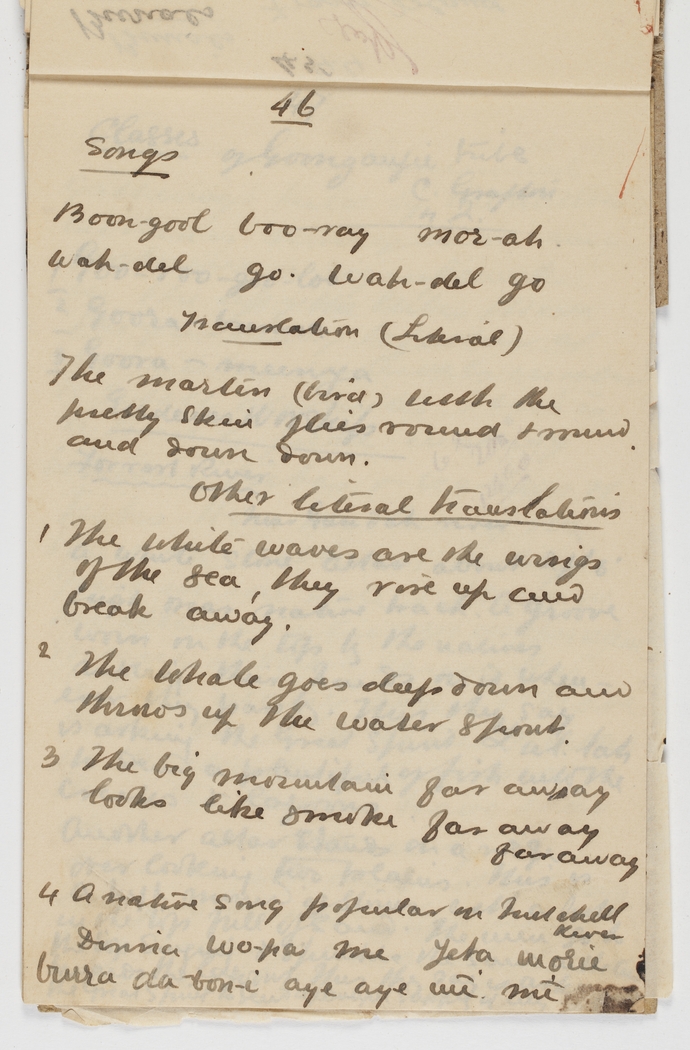
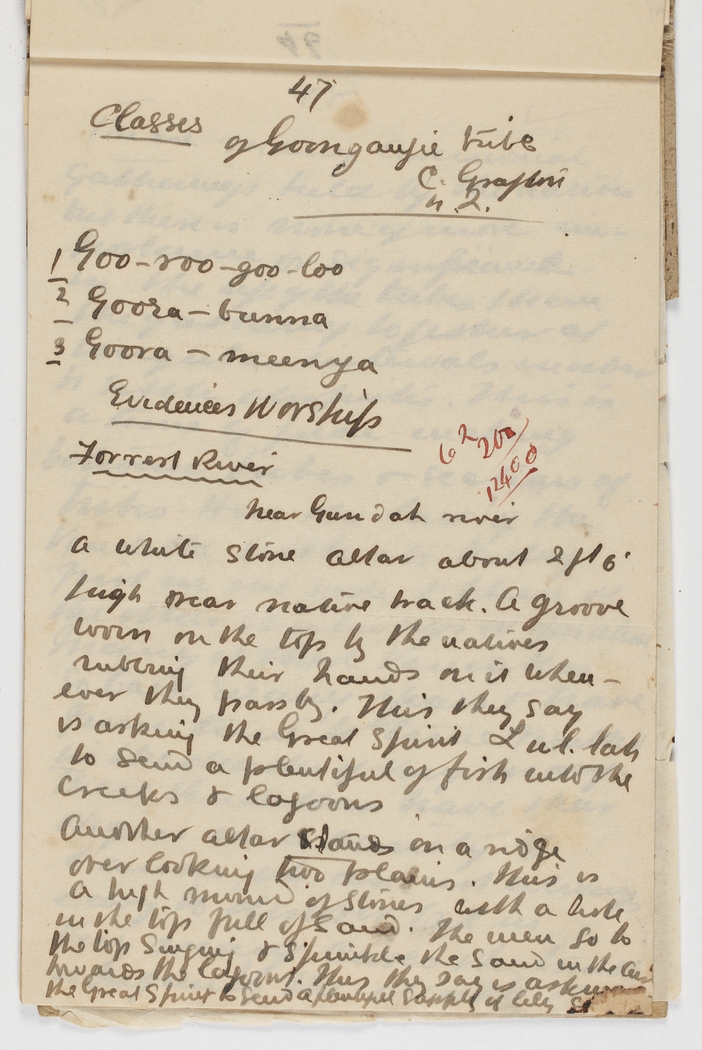
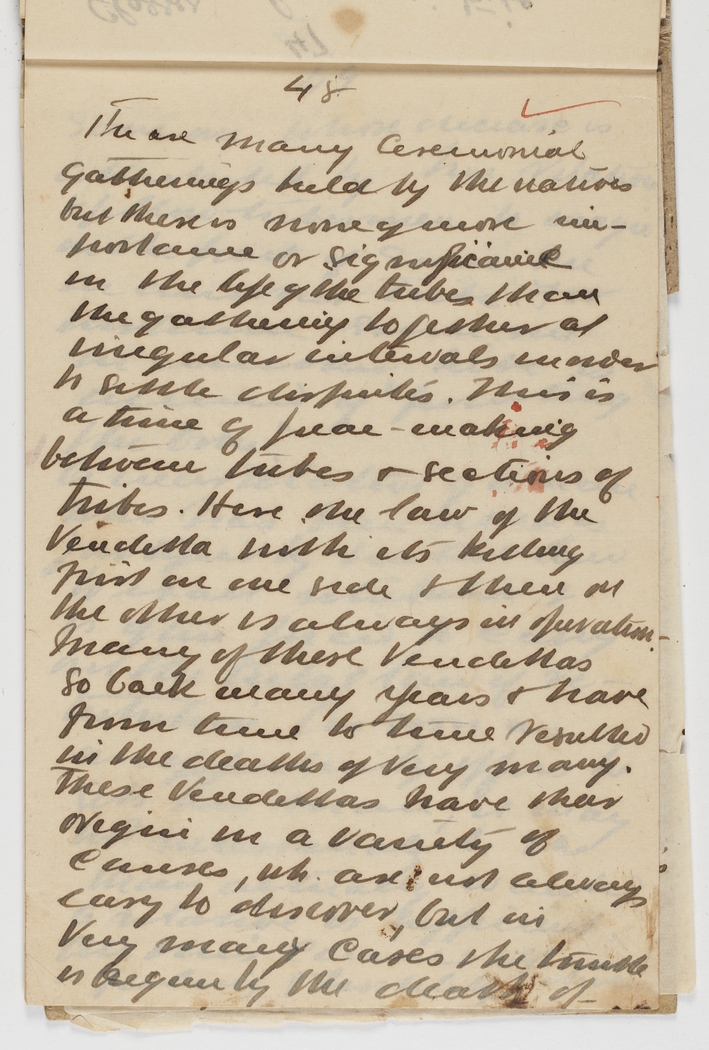
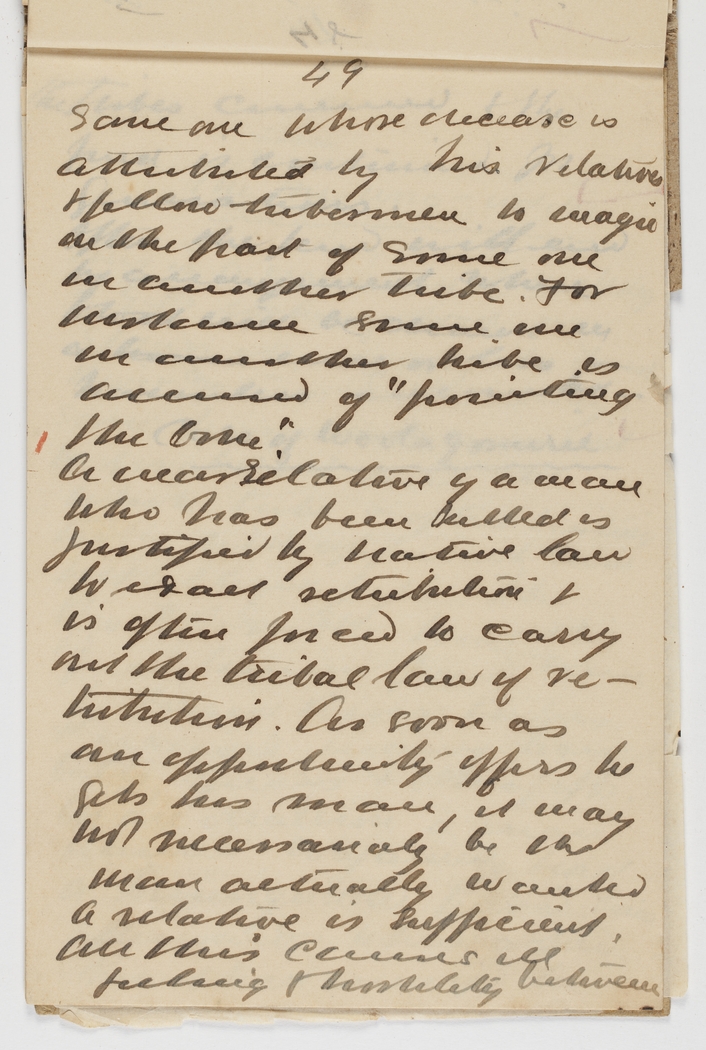
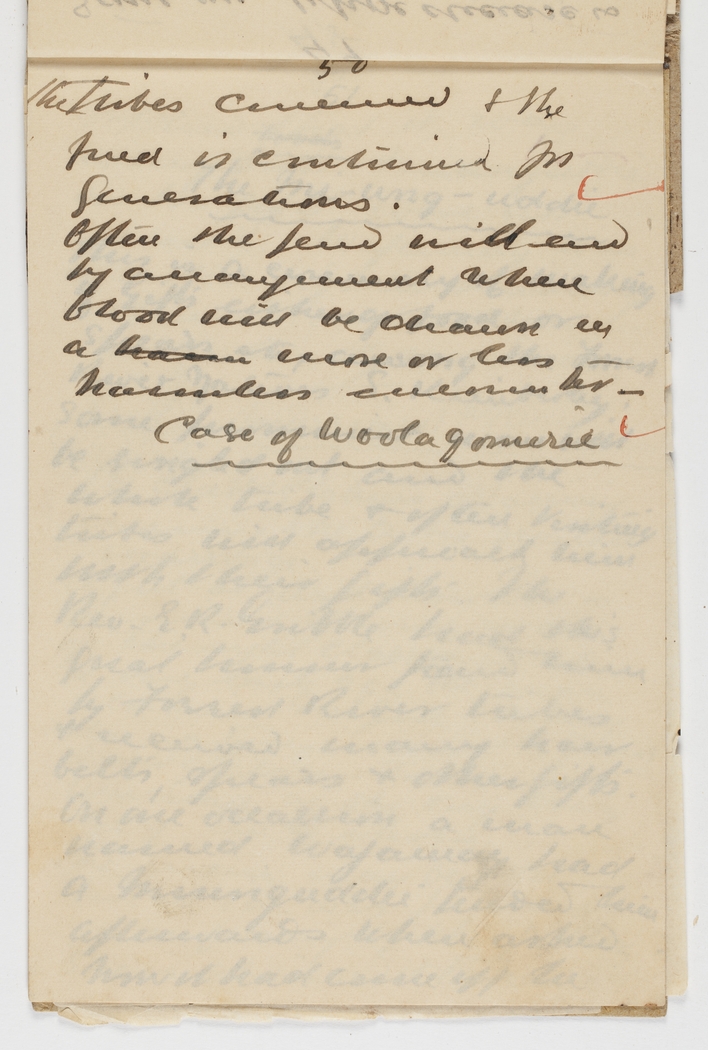
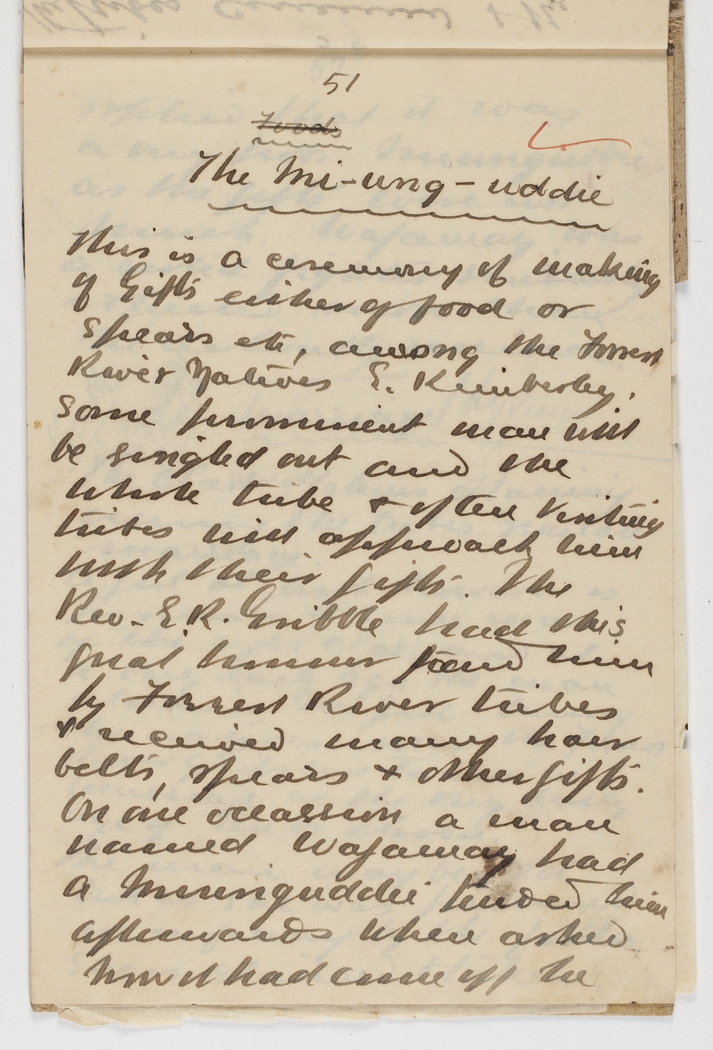
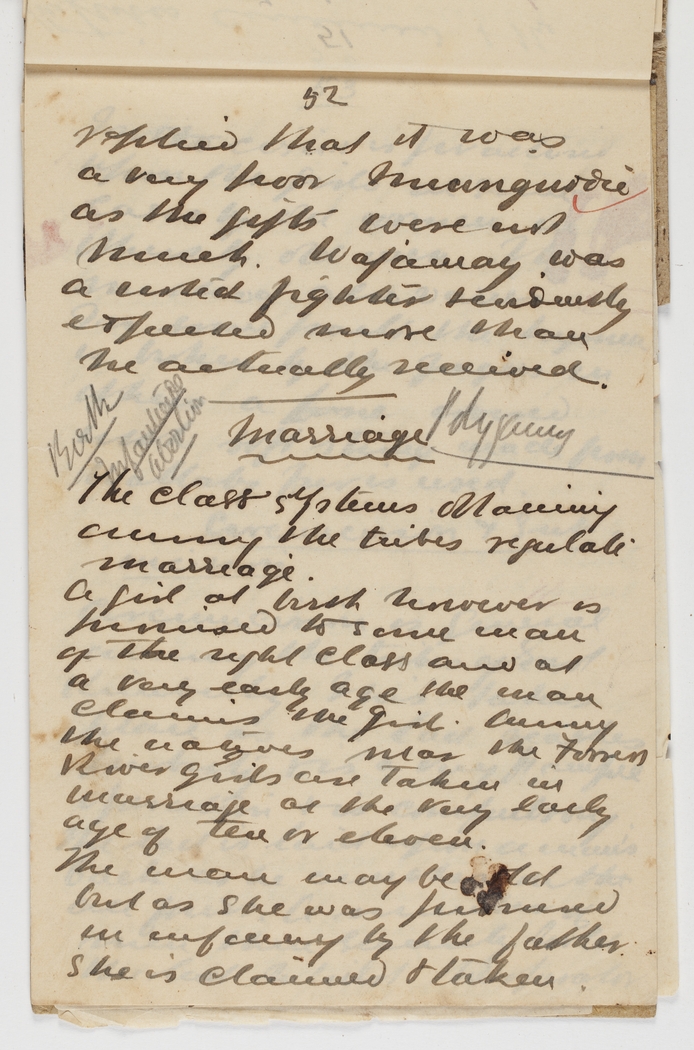
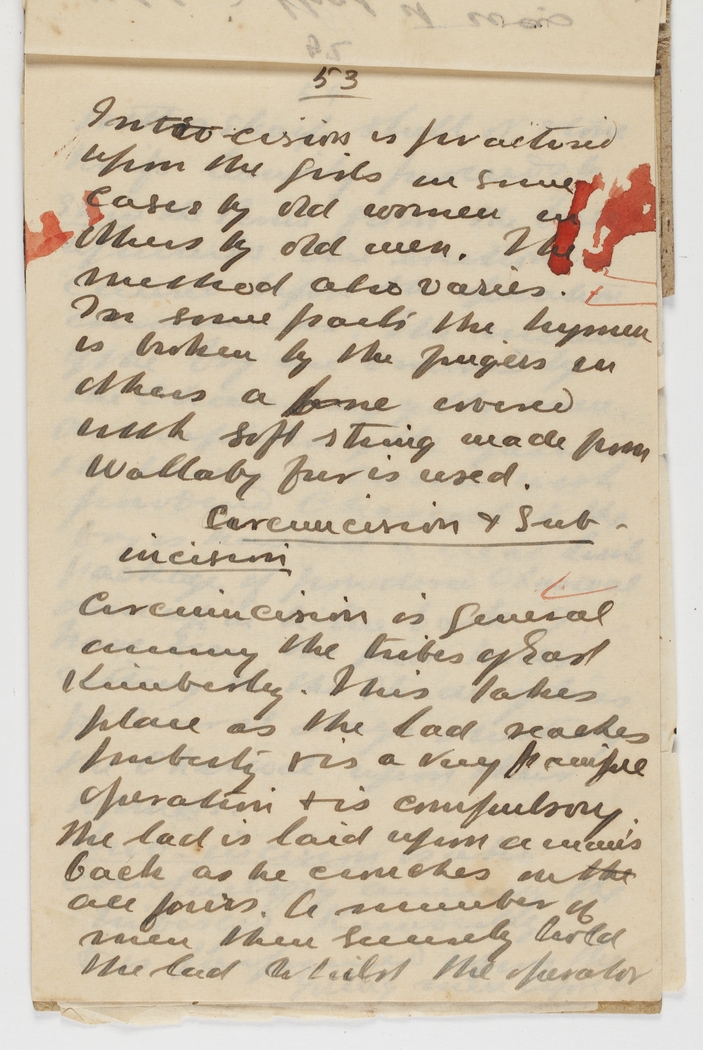
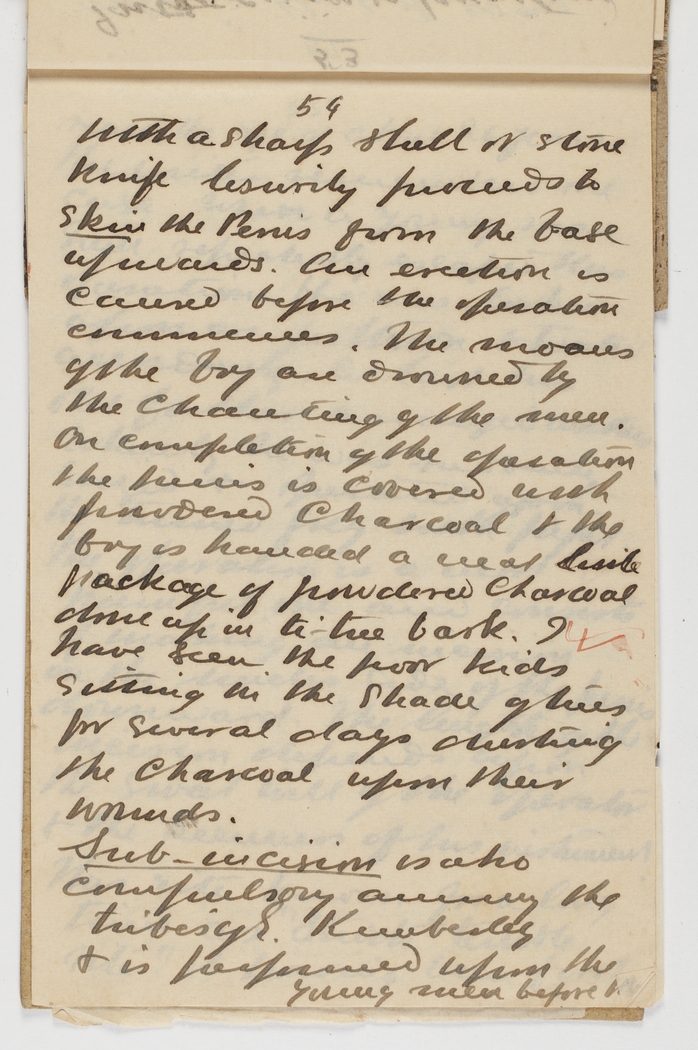
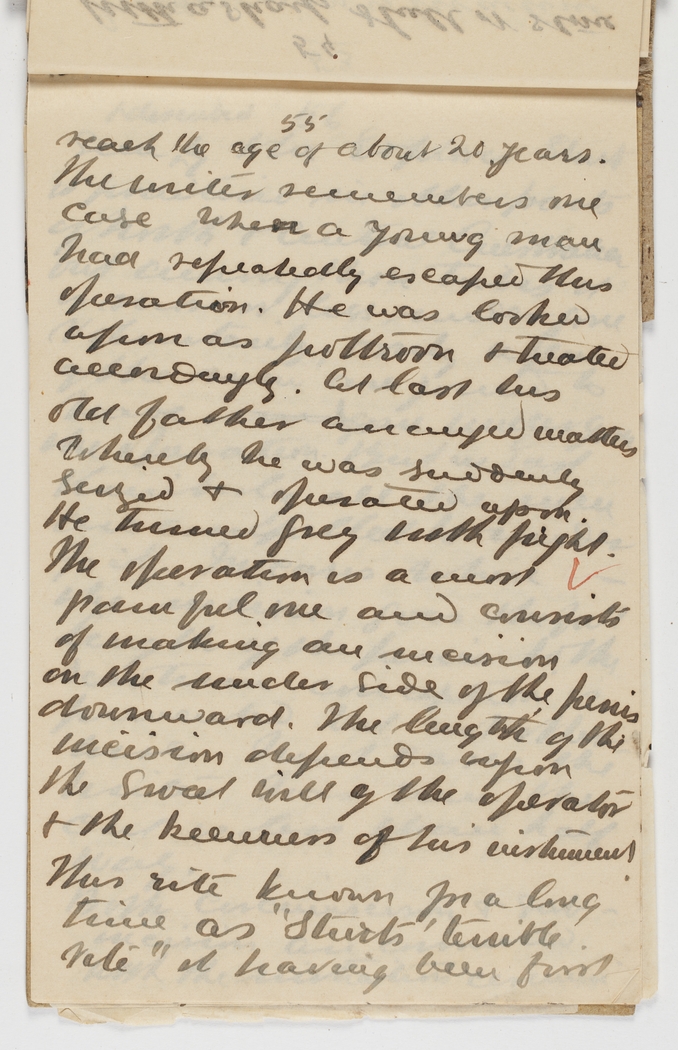
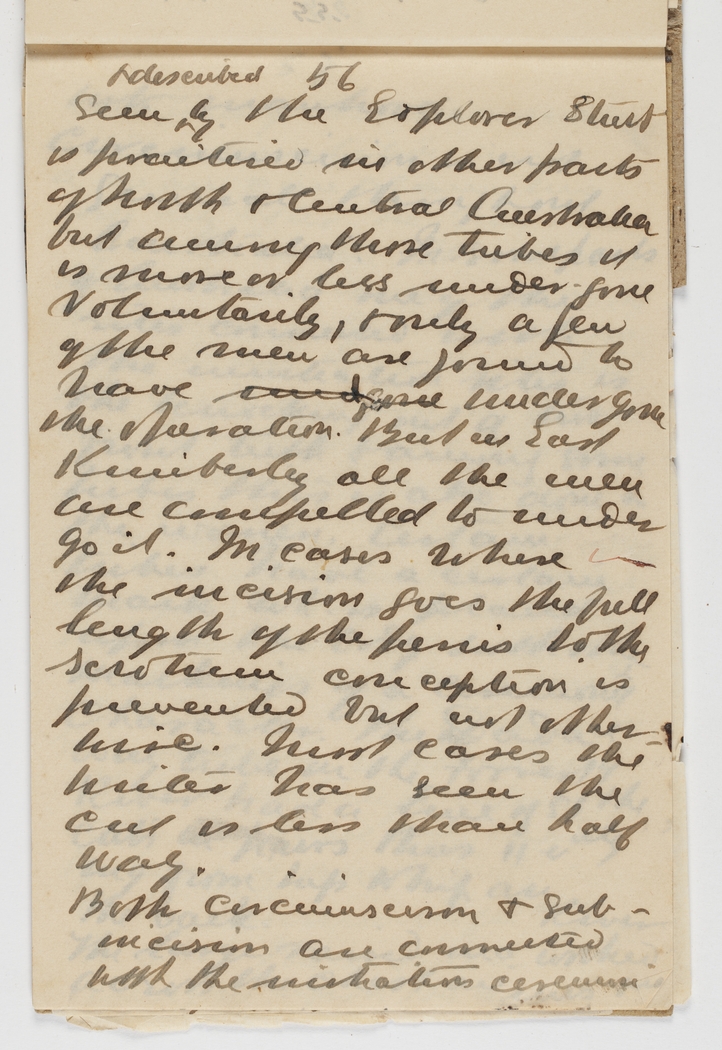
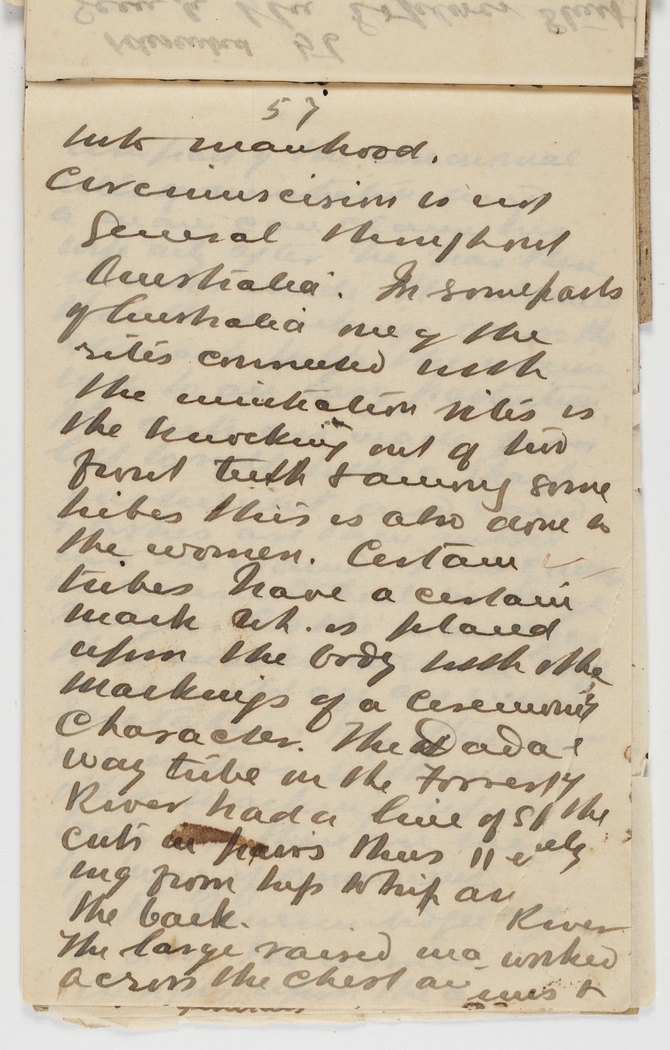
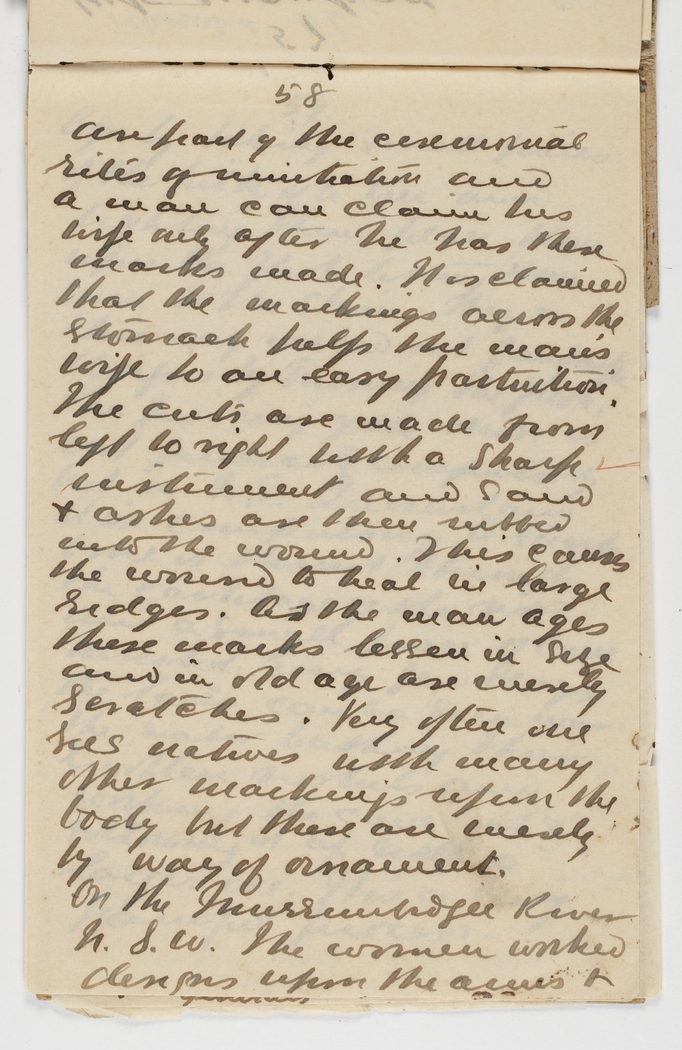
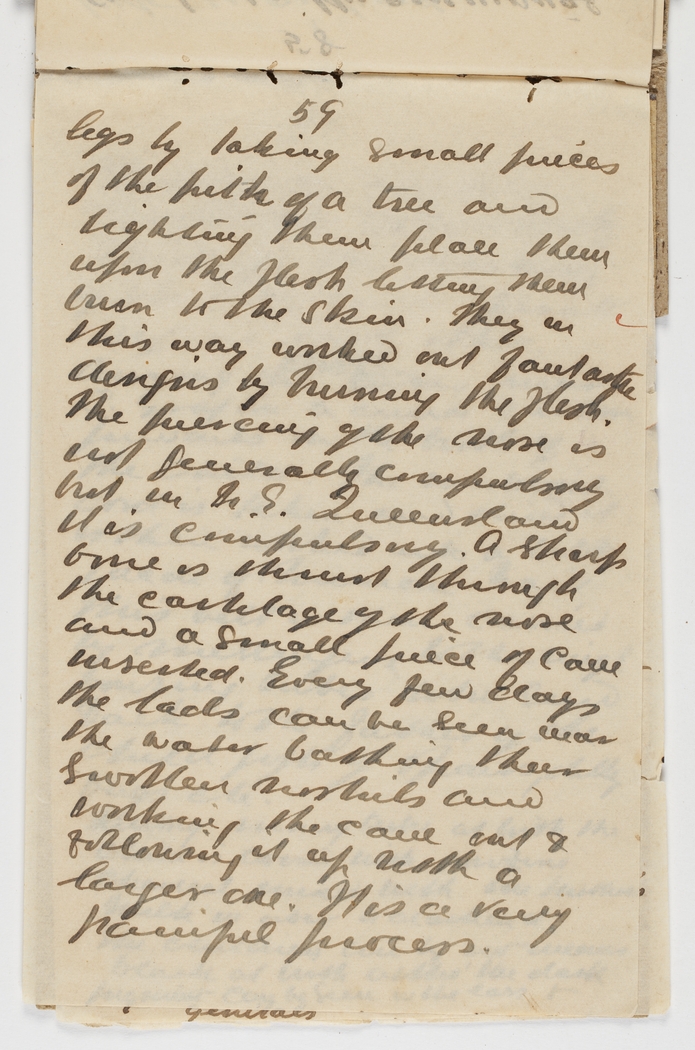
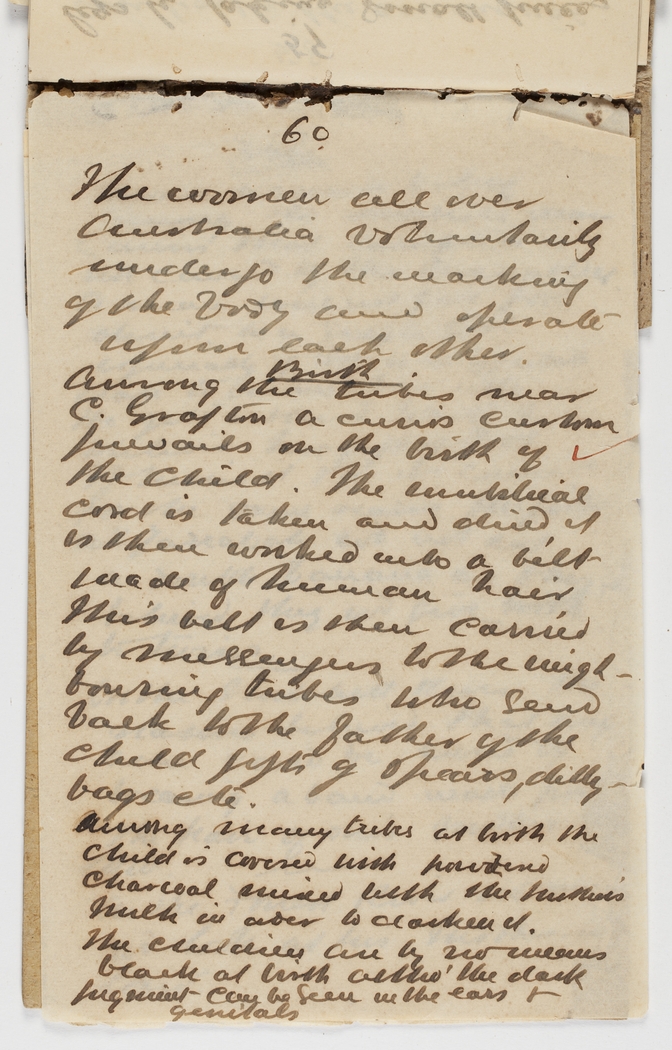
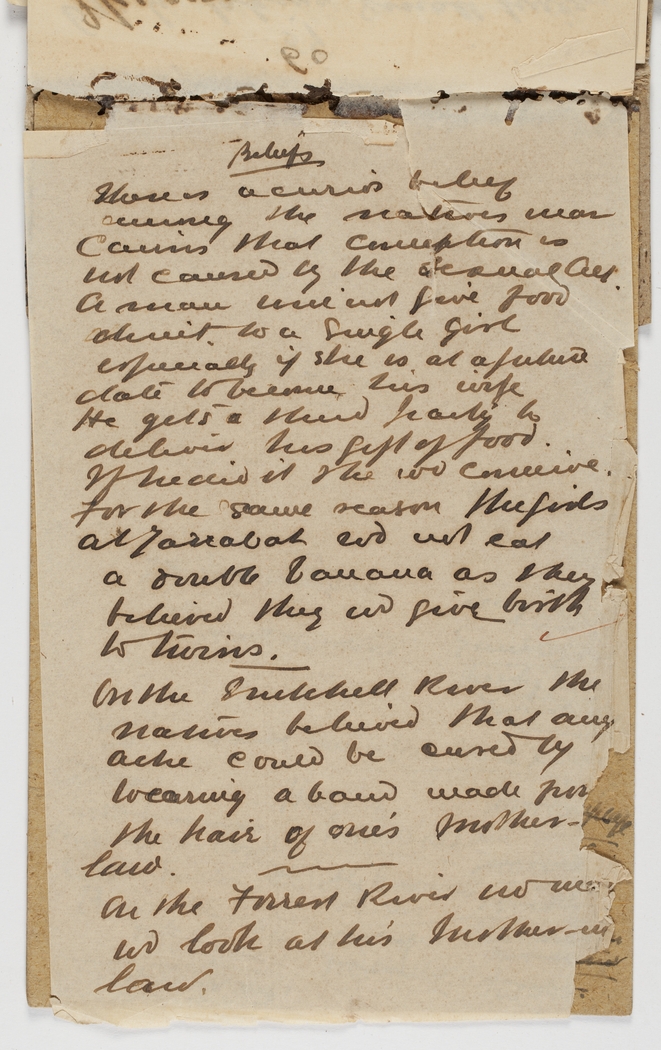
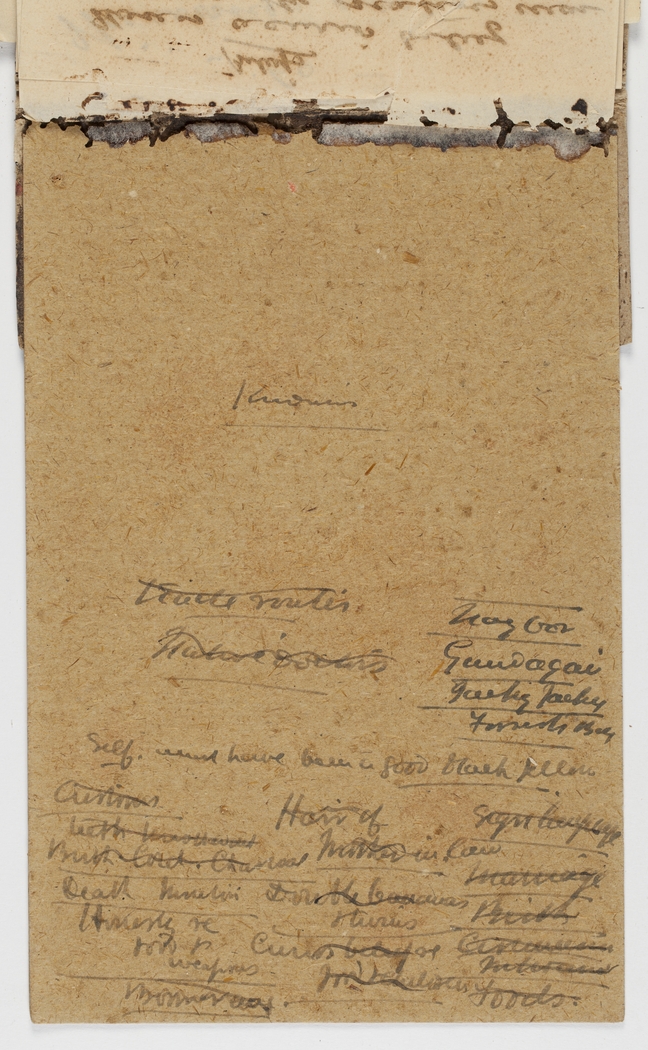
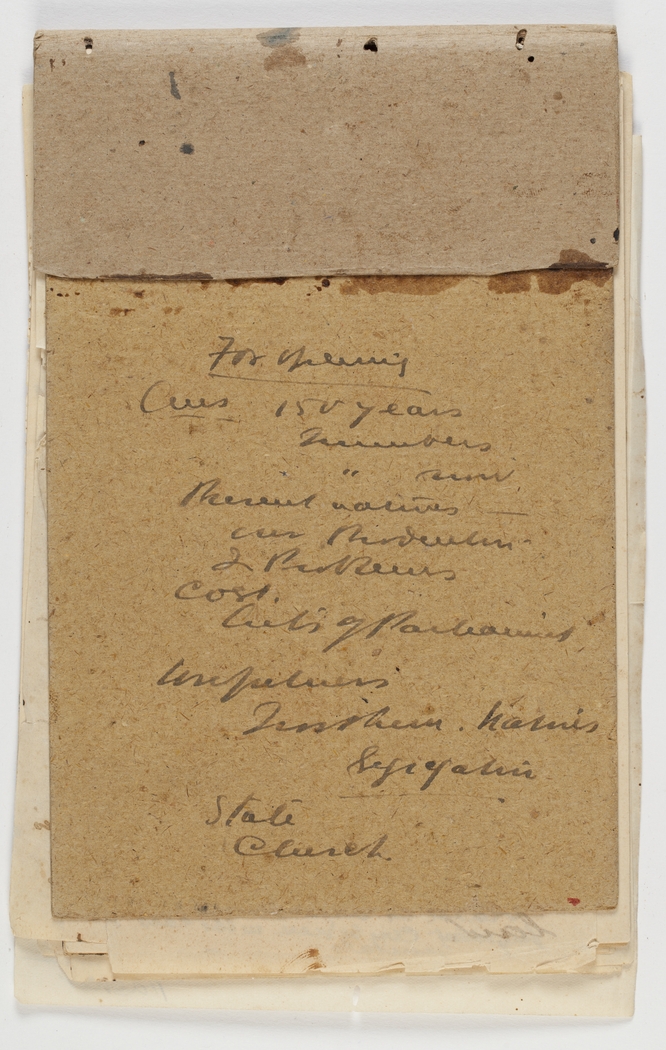
Call number: MLMSS 4503 ADD-ON 1822 / Box 13 / Folder 18 / 32
Author: Gribble, Ernest Richard Bulmer
Description: Reverend Ernest Richard Bulmer (Ernie) Gribble (1868-1957), Anglican missionary, was born on 23 November 1868 at Chilwell, Victoria. In 1892 he was summoned to help his ailing father at Yarrabah Aboriginal Mission, near Cairns, Queensland, and found himself in charge after his father died on 3 June 1893. His theology was a mix of High Church Anglicanism and muscular Christianity. A Social Darwinist in attitude, Gribble was paternalistic and authoritarian: compulsory church attendance, the Protestant work ethic and the Europeanization of Aboriginal culture prevailed on his missions. He segregated the sexes, confined children in dormitories, and satisfied his thwarted military ambition through regimentation, uniforms, parade-duty and mission police. Recalcitrants were imprisoned or given corporal punishment. In 1900 he had been appointed absentee warden of the mission on Fraser Island; he imposed his system there until the mission closed in 1904 and most of its people were transferred to Yarrabah. In June 1907 he and his wife separated. Gribble became involved with an Aboriginal woman; their daughter was born in September 1908. As a vocal opponent of miscegenation, he was tormented by the affair and suffered a mental and physical breakdown. The Church demanded his resignation from Yarrabah and he 'retired' on 17 June 1910. In 1911-13 he served as rector at Gosford, New South Wales, where he wrote 'Life and Experiences of an Australian mission to the Aborigines' for the Gosford Times (1915). He then took charge of the Forrest River mission, in the far north of Western Australia, which relied on forced removals to build a permanent population. There he became a vocal protector of Aborigines who were abused by local pastoralists and police. In 1926 he helped to expose a massacre of Aborigines by a punitive police expedition; his demands for justice attracted international publicity and led to a royal commission (1927). Although its verdict entrenched Gribble's reputation as a champion of Aborigines, he was plagued by episodic depression and accusations of maladministration. In June the Australian Board of Missions found Gribble guilty of financial mismanagement, authoritarianism, violation of Aboriginal traditions and an 'obsession with sexual morality'. Gribble's dismissal was sealed when he concealed from the police the complicity of a mission resident in a tribal murder. He left the mission on 20 November and defended his record in three autobiographical works: Forty Years with the Aborigines (Sydney, 1930), The Problem of the Australian Aboriginal (1932) and A Despised Race: The Vanishing Aboriginals of Australia (1933). From 1930 Gribble was Anglican chaplain to the government Aboriginal settlement at Palm Island, Queensland. While his authoritarianism persisted, his campaigns for Aboriginal rights won him respect. In 1939 he established the James Noble Fund to give Palm Islanders access to secondary education. Gribble was appointed O.B.E. in 1956. He was a prolific contributor to Church journals; his memoirs, 'Over the Years' and 'The Setting Sun', were published in the Northern Churchman (1932-34, 1945-47). Although elderly, frail and almost deaf, he refused to retire from Palm Island. In 1957 the Church forcibly removed him to Yarrabah where he died on 18 October that year and was buried in the mission cemetery. Extracts from: Christine Halse, 'Gribble, Ernest Richard Bulmer (Ernie) (1868–1957)', Australian Dictionary of Biography, National Centre of Biography, Australian National University, http://adb.anu.edu.au/biography/gribble-ernest-richard-bulmer-ernie-10367/text18363 (accessed online 7 July 2015), First published in Australian Dictionary of Biography, Volume 14, (MUP), 1996.
Communities: Gunggay








